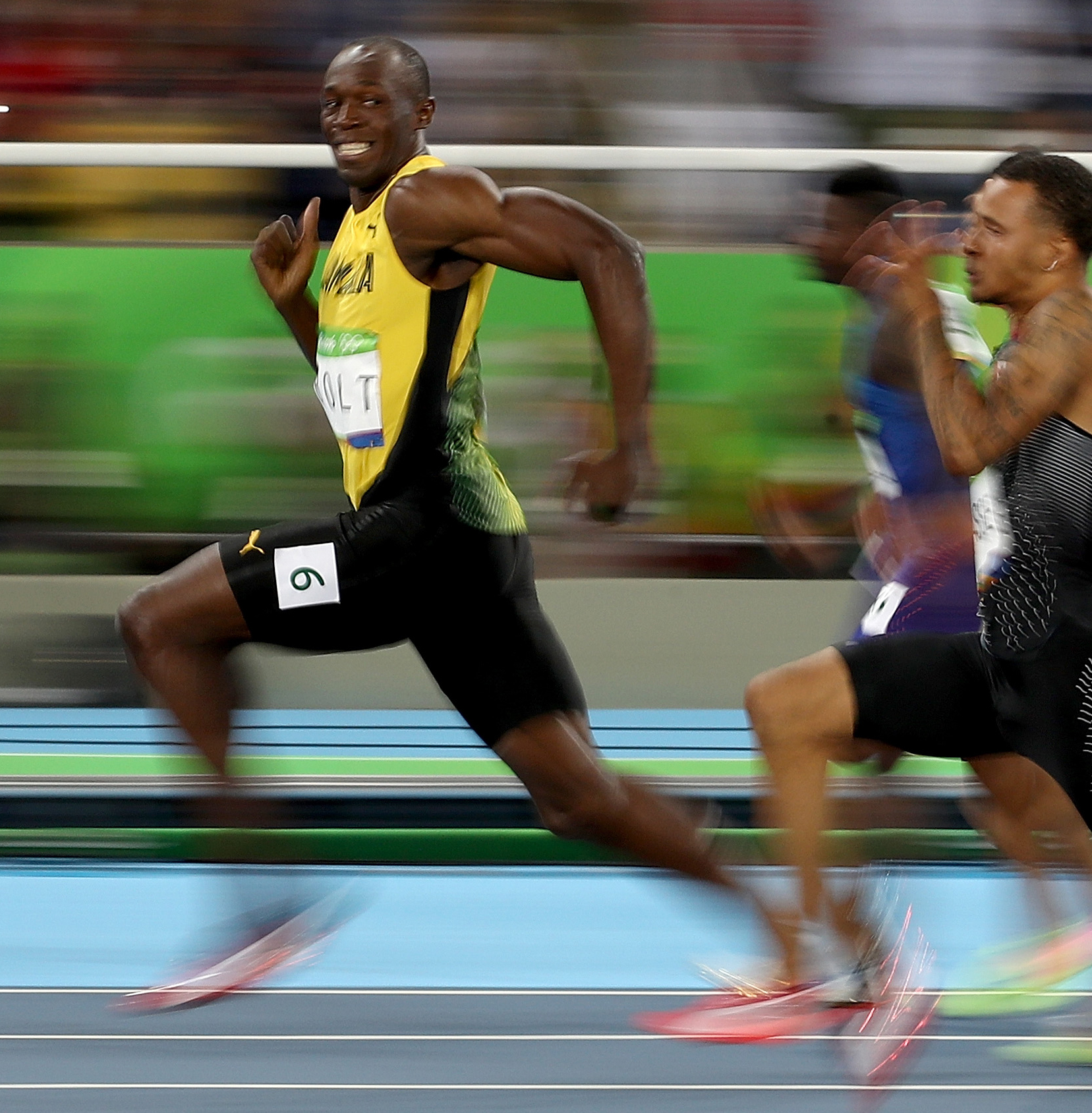
You tune in to watch the Olympics for a number of reasons. Maybe you're a fan of a particular sport or player; maybe you just love watching incredible feats of strength and agility from the world's best athletes.
No matter your motives, you also watch because the Olympics provide wild moments—both good and bad—that make your jaw literally drop open. From Simone Biles proving (yet again) that she's the greatest gymnast of all time to a feud between two ice skaters that led to more than one arrest (I'm talking about Nancy Kerrigan and Tonya Harding, of course), the sporting event has had some of the most dramatic ups and downs ever seen. Below, 32 of the wildest moments in Olympic history.
Princess Anne, 1976

It's unusual to see royalty participate in the Olympics, but that's exactly what Princess Anne did. She competed at the 1976 Montreal Olympics, becoming the first British royal to do so. She fell off her horse and then quickly remounted to finish the race in dramatic fashion. Anne's daughter, Zara Phillips, competed in 2012 London Olympic Games and won a silver medal.
The Spice Girls, 2012

The closing ceremony of the London 2012 Olympics was almost as dramatic as the games themselves. Fans were treated to a rare musical act: a reunion of the Spice Girls! As of this writing, it would be the last time they'd perform together. An estimated 750 million people watched.
Eric Moussambani, 2000
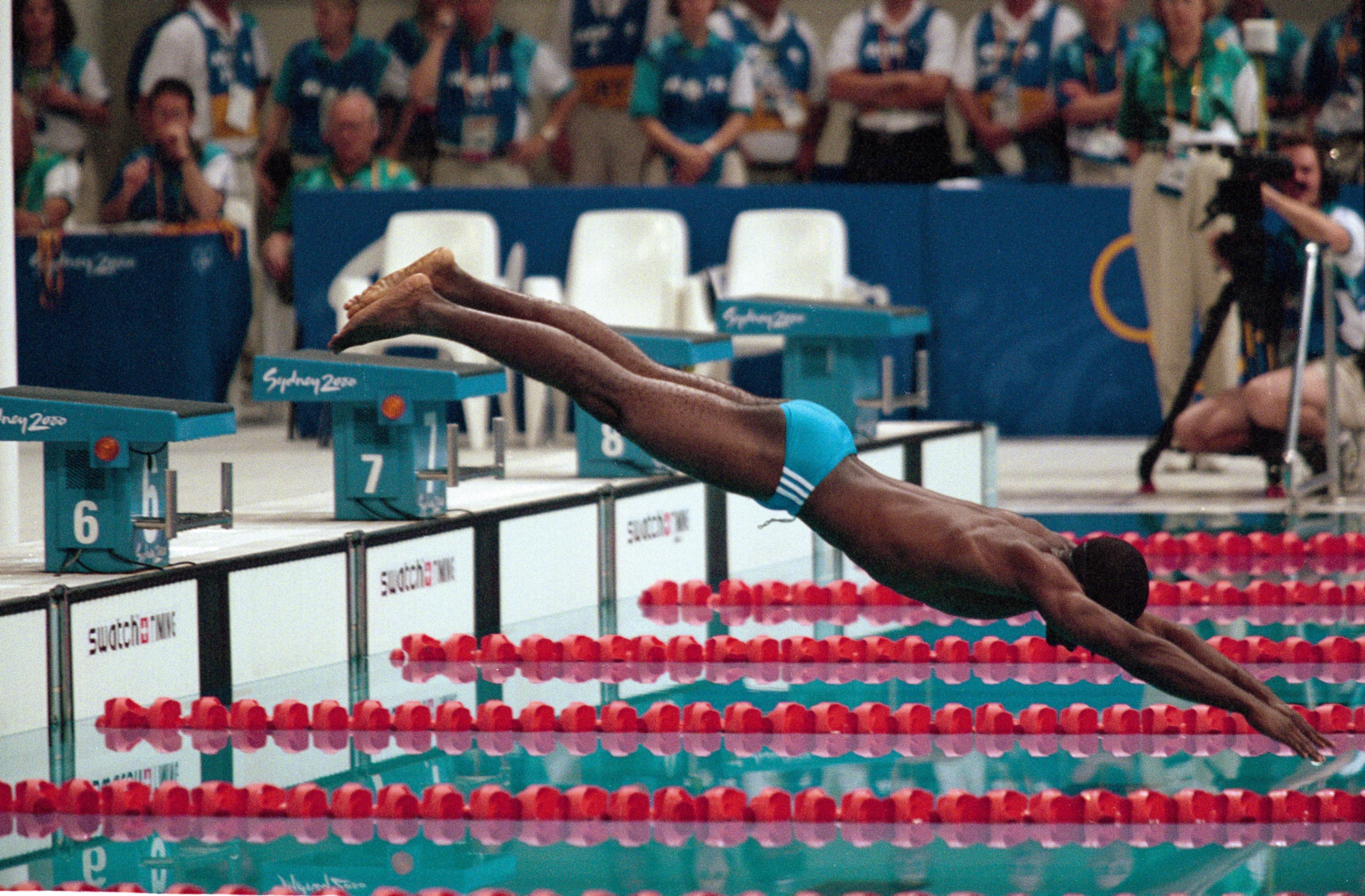
"Eric the Eel" had only started swimming less than a year prior to attending the Olympics and hadn't even seen a pool that big (in his native Equatorial Guinea he'd trained in a lake and a hotel pool). He swam a very slow 1.52.72 for the 100m freestyle (the record was 48.18), but a jubilant crowd cheered him on. And, because the other two swimmers in his race were disqualified, he won his heat!
U.S. Basketball Team, 1972
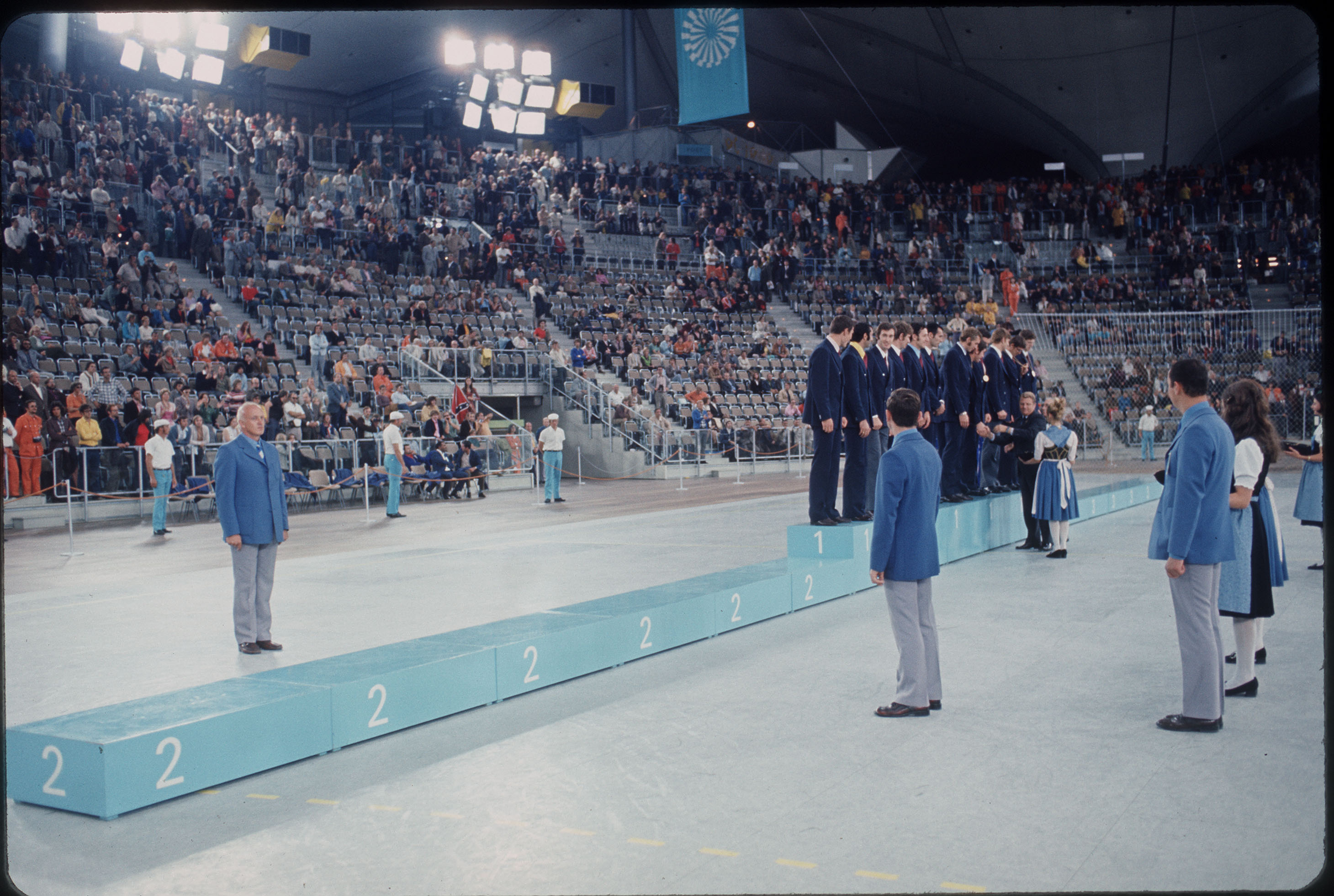
The last event of the 1972 Games was an unbelievably controversial basketball game between the U.S. and the Soviet Union. The USSR was one medal away from 50 gold medals. For reasons that remain unclear, in the final seconds, a play was restarted—twice—and the Soviets won in the second attempt. The U.S. players boycotted the medal ceremony.
Black Power Salute, 1968
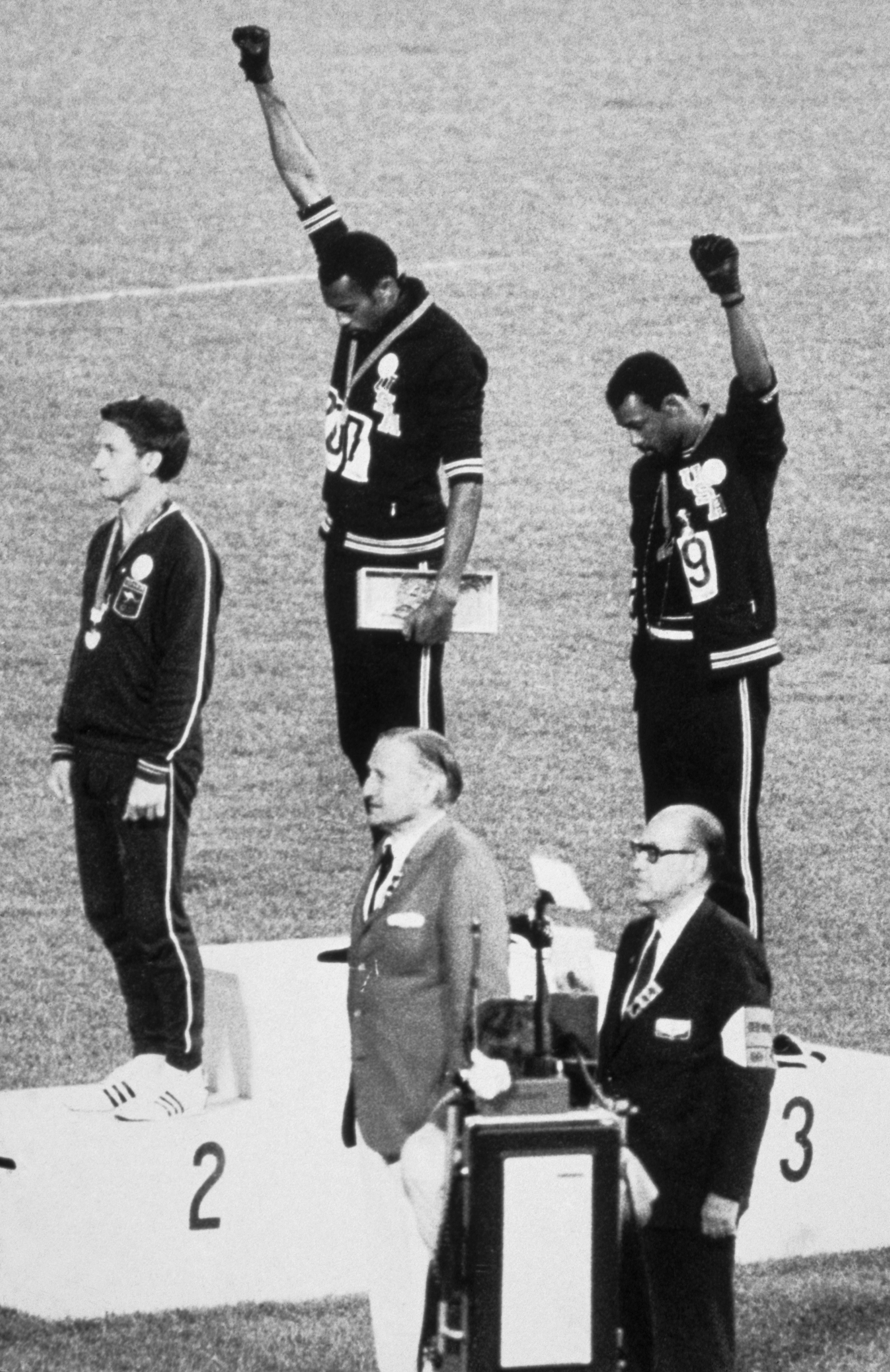
One of the most indelible images of the Olympics is the medal ceremony for the men's 200m run in 1968, with Tommie Smith and John Carlos raising their fists in a Black Power salute. They also wore beads to protest lynchings and went barefoot in support of African-Americans suffering from poverty. Avery Brundage, the president of the IOC, expelled them from the Olympics in a move that was (and is) widely derided.
Dick Fosbury, 1968
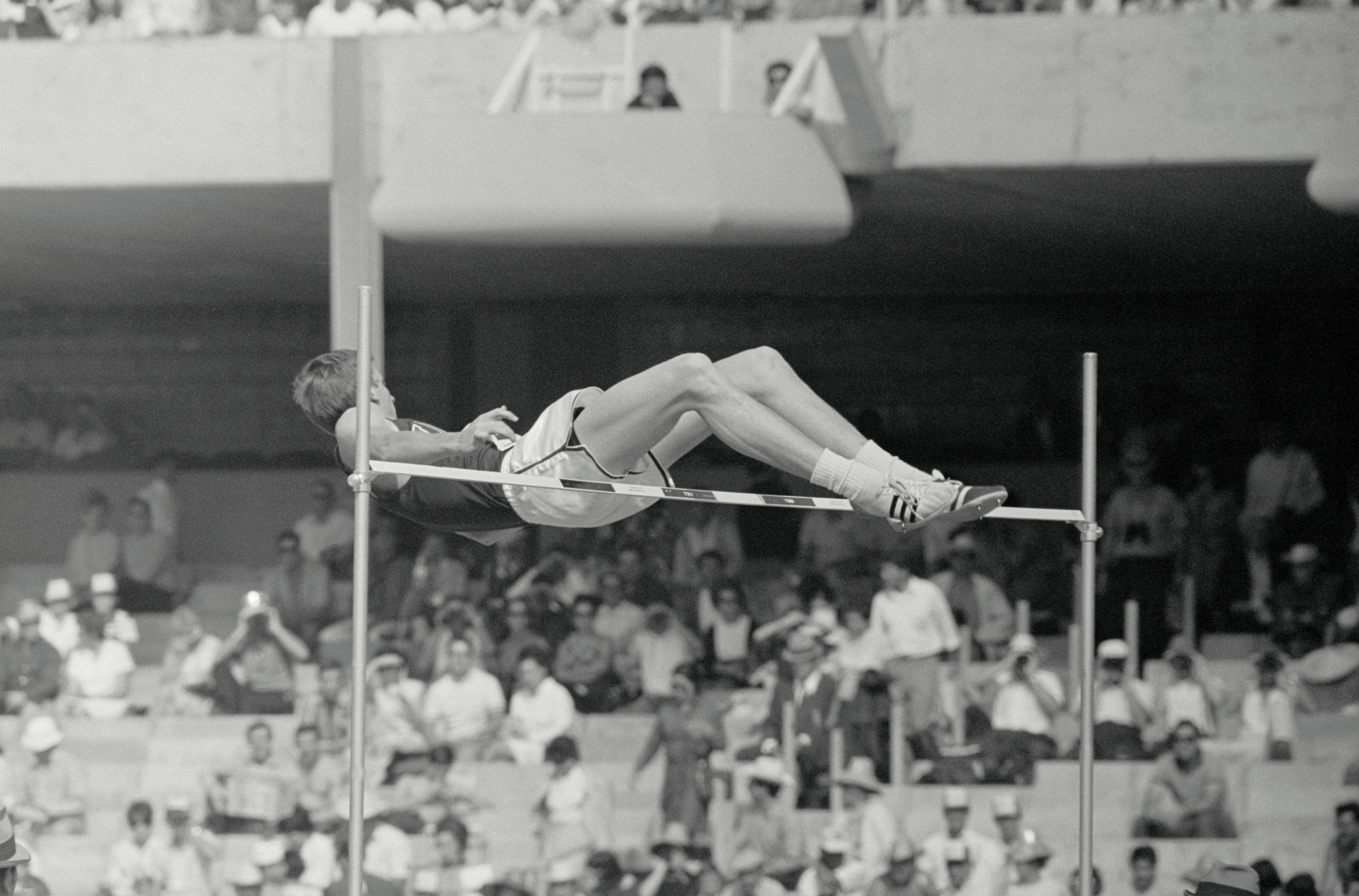
You may have heard of the "Fosbury flop," wherein a high jumper clears the bar with a back-first jumping style. But you may not realize that it was pioneered during the 1968 Olympics by Dick Fosbury (pictured). The "flop" would go on to become the standard for the high jump in future events.
Katie Ledecky, 2016

In 2016, Katie Ledecky obliterated the competition in her swimming events. She became the first swimmer since 1968 to win the 200m, 400m, and 800m freestyle races, and in total she set two world records and won four Olympic gold medals and two silvers. She was the most-decorated female athlete that year. Fun fact: she won gold in 2024, making it her ninth gold.
Mark Spitz, 1972
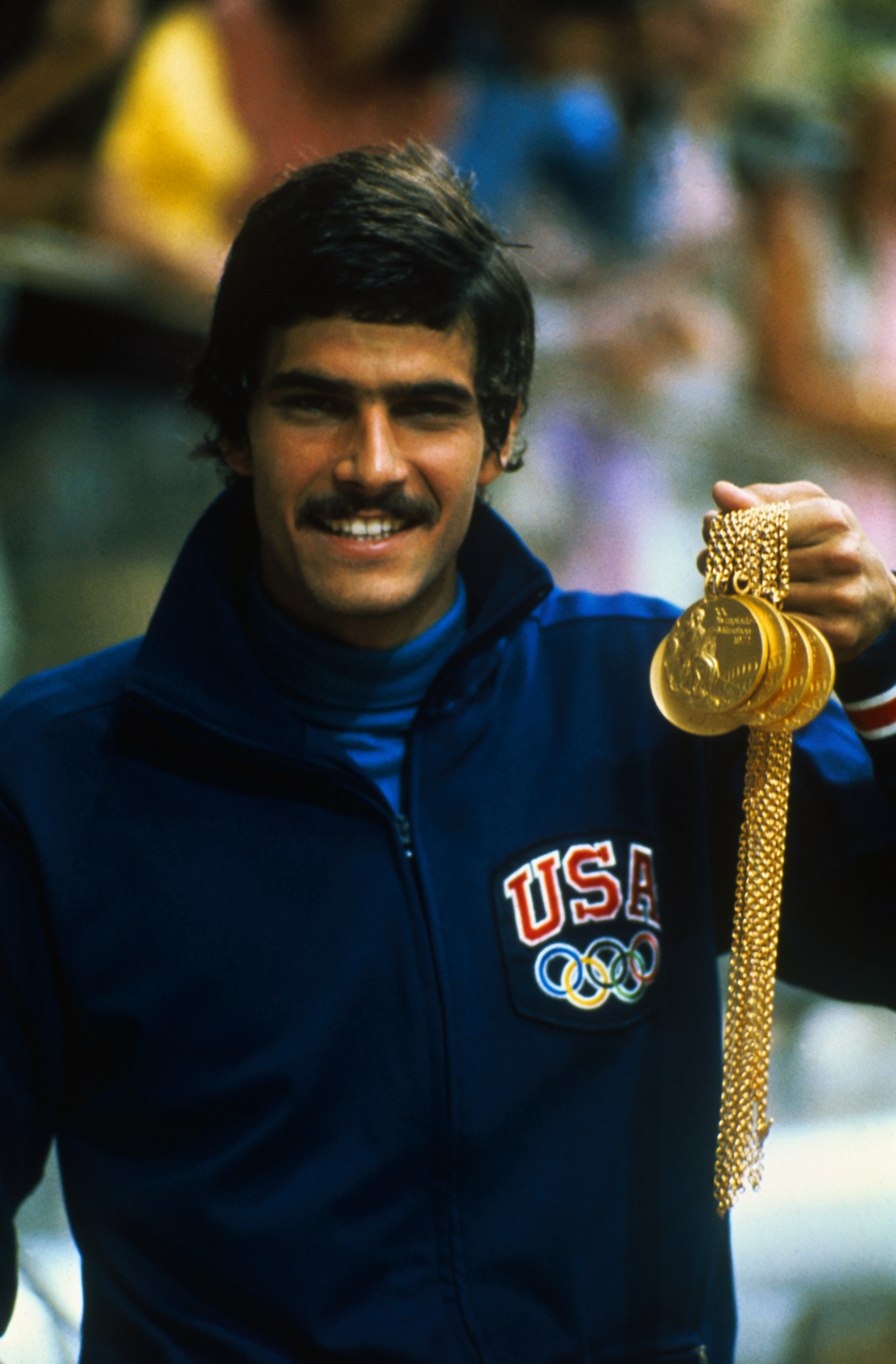
Mark Spitz won seven (!) swimming events at the 1972 Olympics and broke world records in every single one of them. Over his career, he would win nine golds, one silver, and one bronze. His record for most gold medals in a single year would remain until Michael Phelps entered the scene.
Michael Phelps, 2016
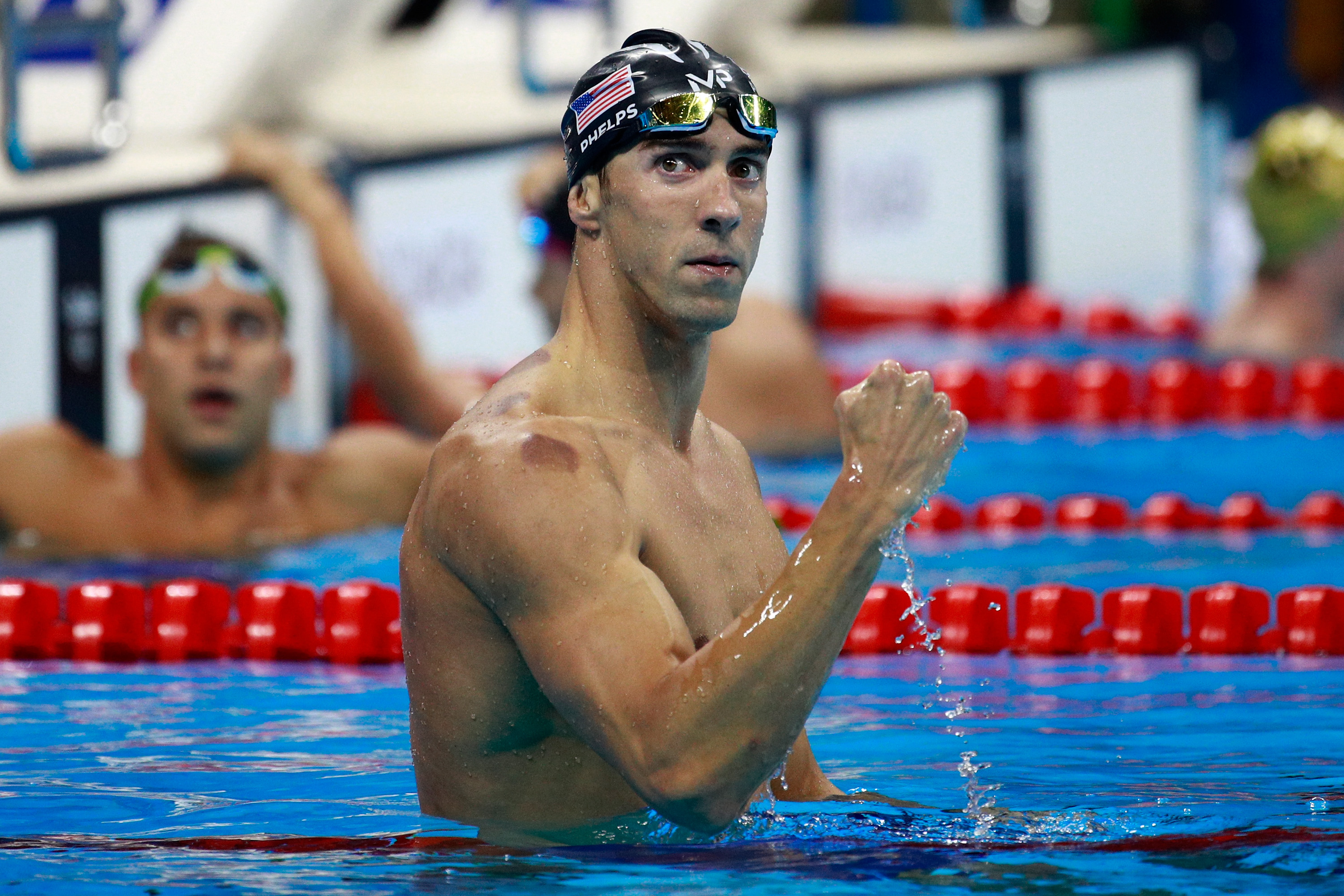
Michael Phelps! Over the course of his career, Phelps has won the most medals of any person (28 medals, 23 of them gold). In Beijing 2008, Phelps broke Mark Spitz's record and took home an unbelievable eight gold medals and broke seven world records in the process.
Hungary v. Russia Water Polo, 1956
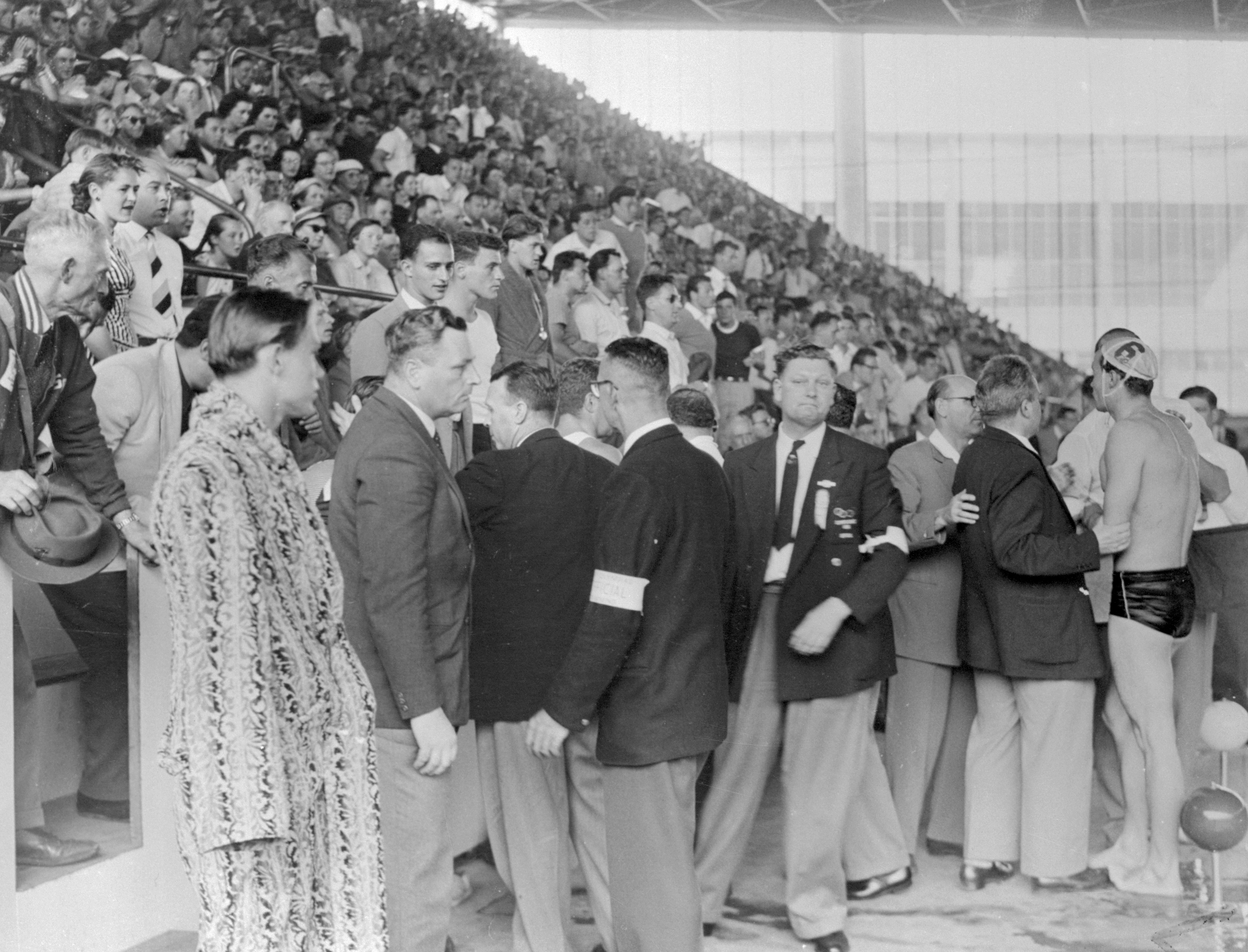
The Olympics can be messy, but it's rare for a match to get literally bloody. For the 1956 Hungary vs. USSR water polo match, months after the Soviets had suppressed a Budapest uprising, the two teams began insulting each other as soon as play began. That progressed to kicks, hits, and a punch that left a player bleeding from the face. With the threat of a riot brewing in the crowd, the match was called early for Hungary, who were winning 4–0.
Michael Johnson, 1996
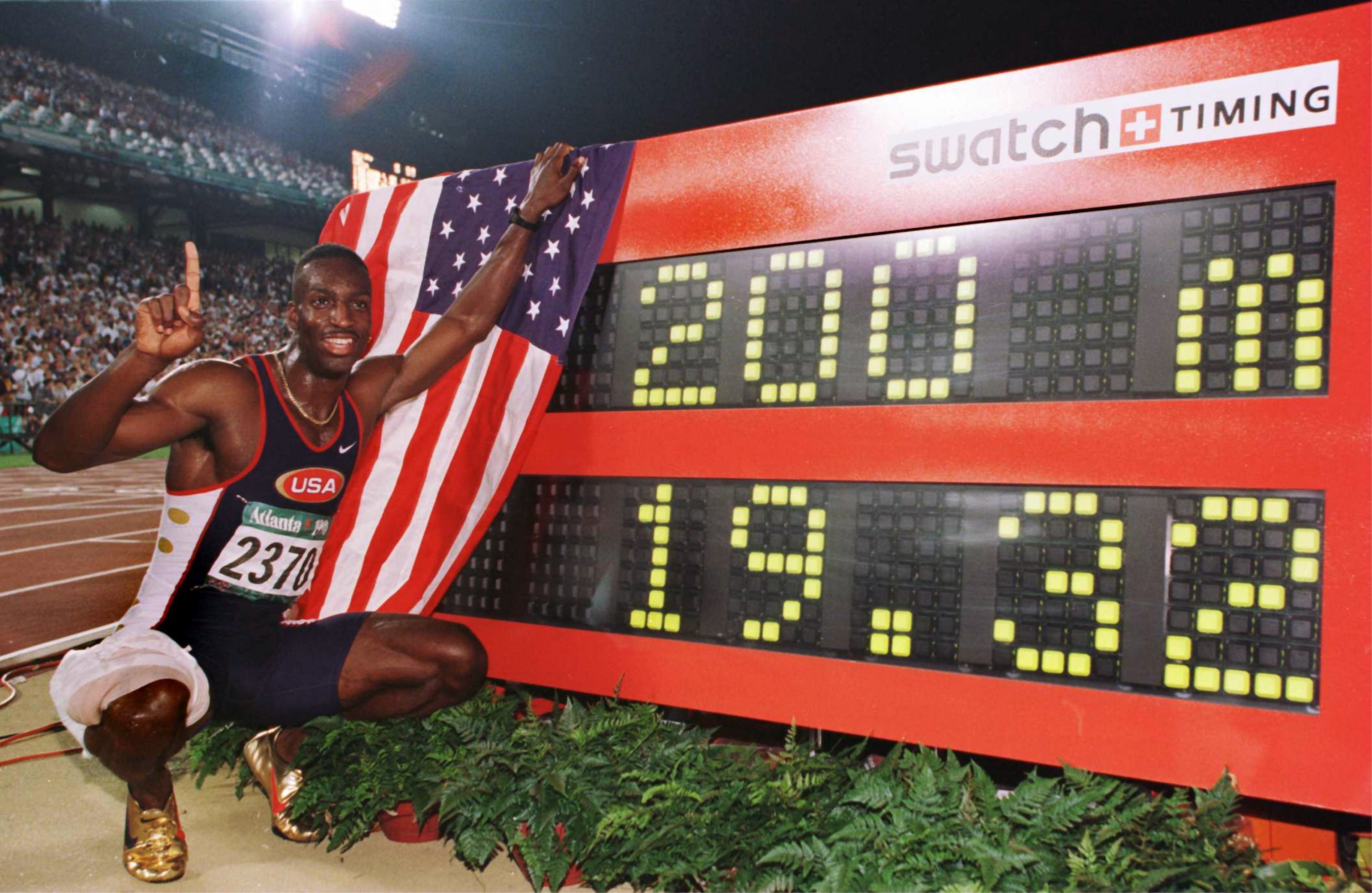
Michael Johnson and his cool gold shoes had a lot to celebrate at the 1996 Olympics. He set a new world record for the 200m and also took home gold in the 400m. Before he retired, he'd won four gold medals in total and was considered one of the most consistently excellent sprinters in the world.
Wilma Rudolph, 1960
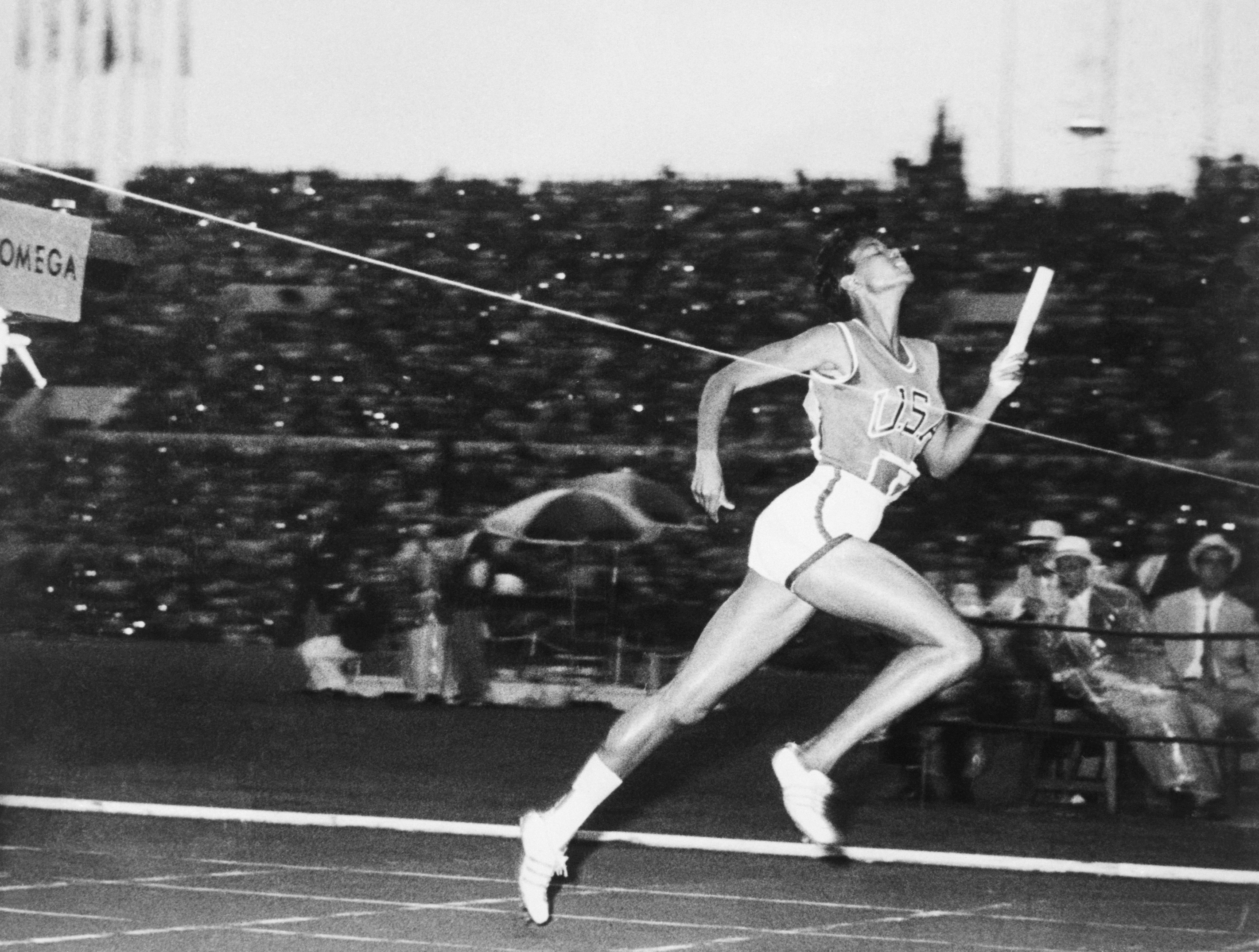
At the 1960 Olympics, Wilma Rudolph took home three gold medals (in the 100m, 200m and 4x100m relay), becoming the first American woman to win three golds in track and field in a single Olympics. Called the fastest woman in the world, she became an extremely important role model; it's in large part because of her that the sport became popular.
Bob Beamon, 1968
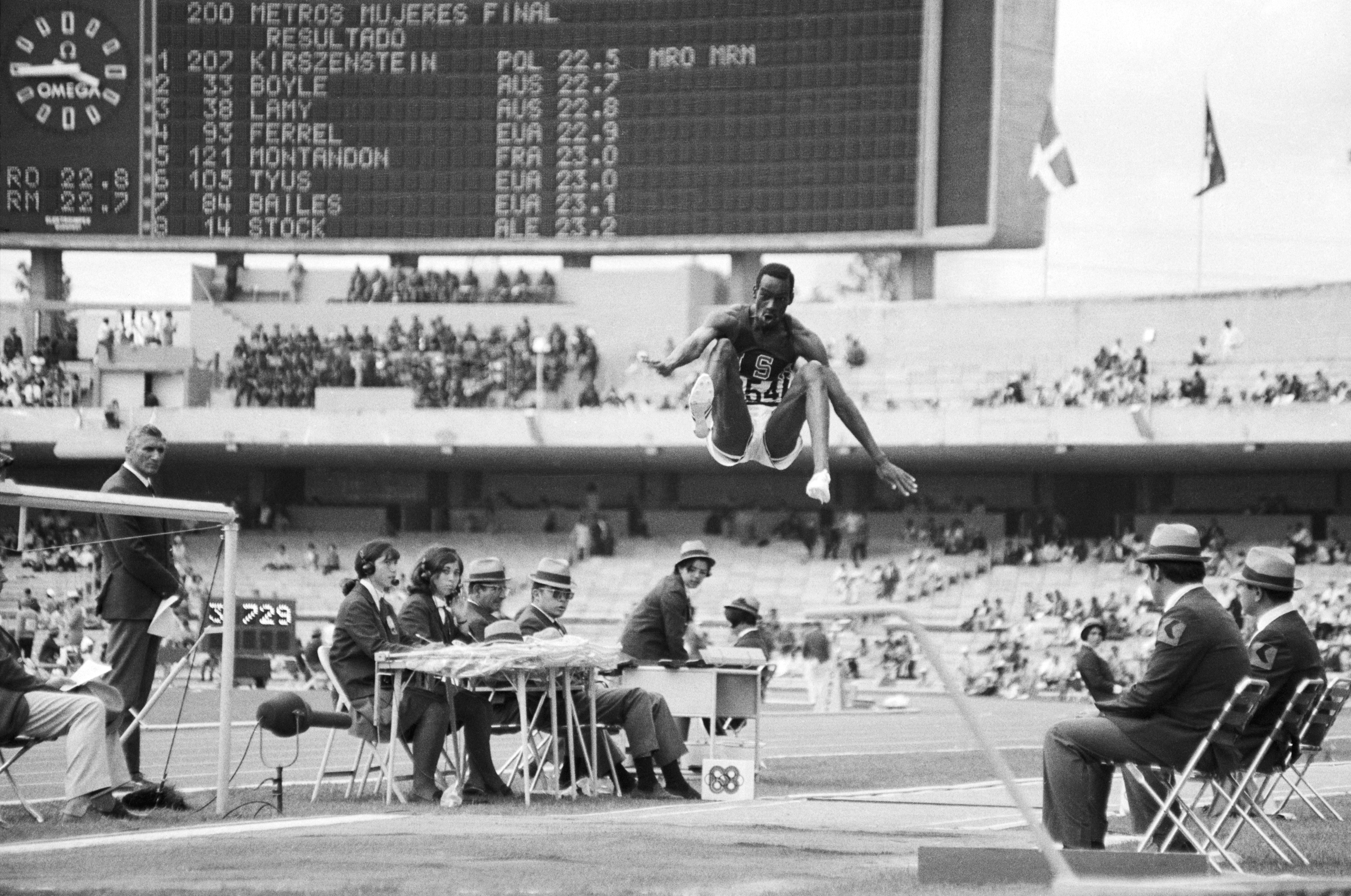
It's an iconic image: American long jumper Bob Beamon breaking the world record by jumping 8.90 meters in 1968 (shocking himself and everyone else in the process). He was so surprised by his own jump that he collapsed and had a brief cataplectic seizure.
The "Dream Team," 1992
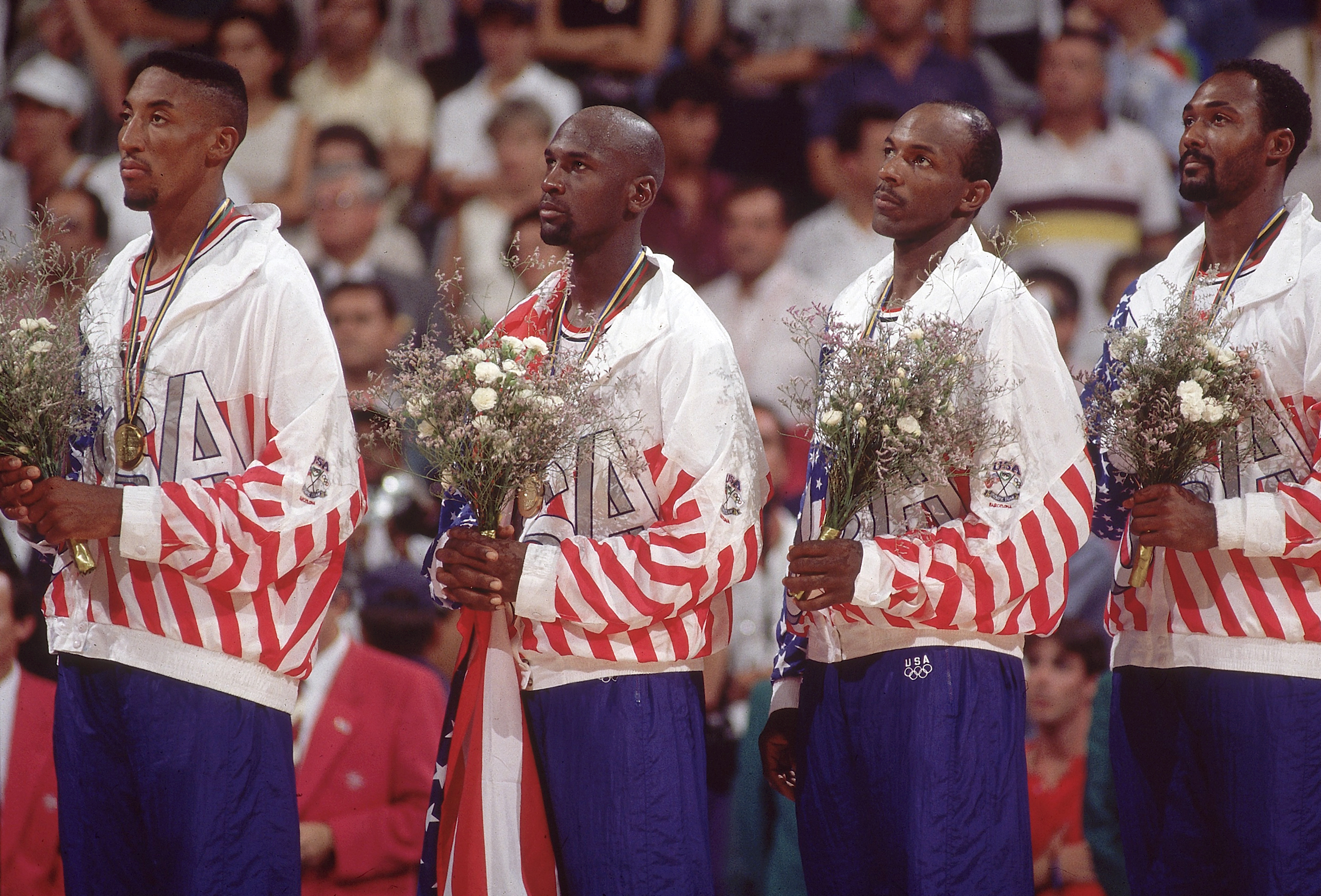
For basketball fans, the Team USA 1992 Olympic "Dream Team" (which included Larry Bird, Magic Johnson, Scottie Pippen, Charles Barkley, and Michael Jordan, among others) is often considered the greatest sports team...ever. They were inducted into the U.S. Olympic Hall of Fame in 2009.
Gianmarco Tamberi and Mutaz Barshim, 2020
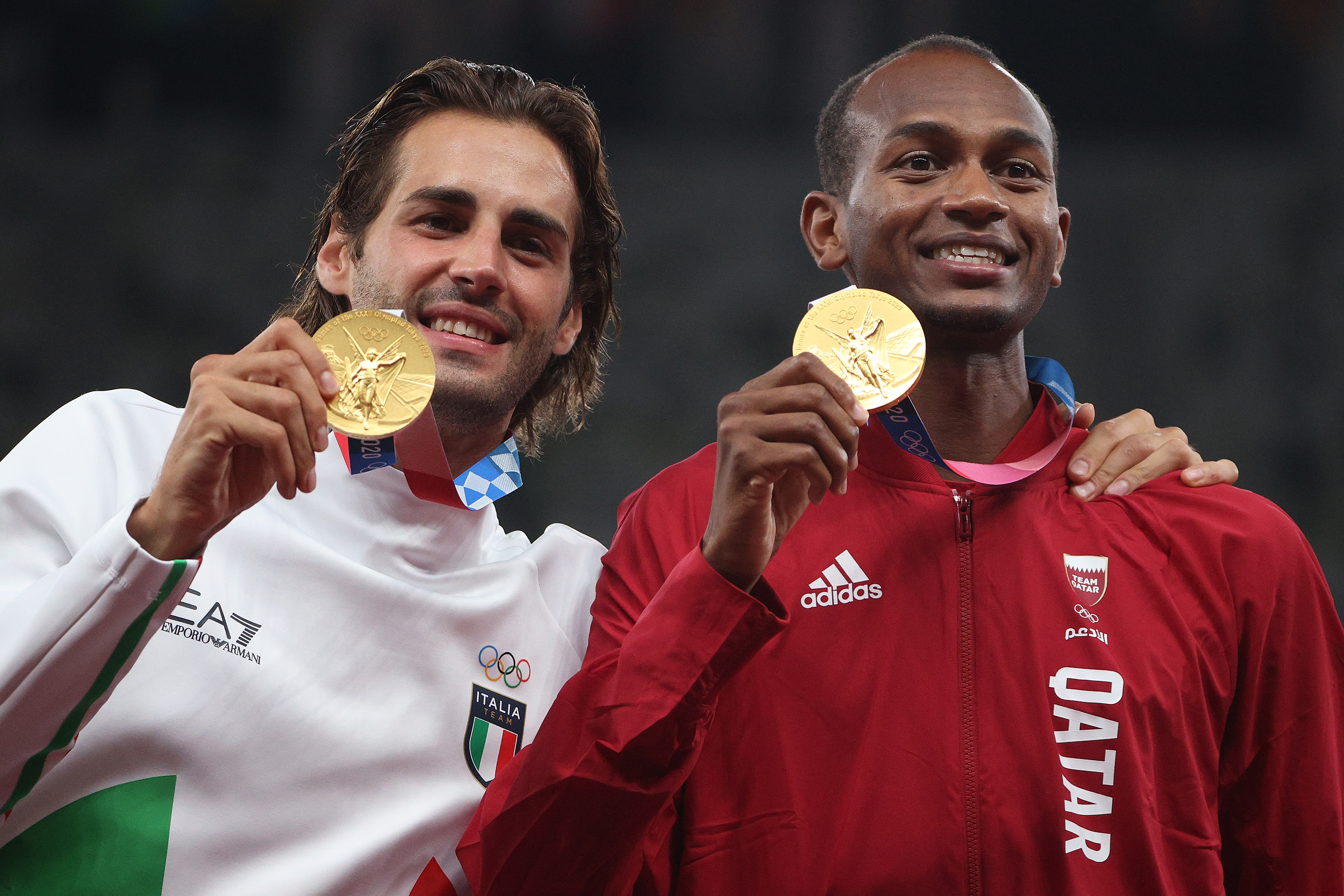
At the 2020 Tokyo Olympics, Italy’s Gianmarco Tamberi and Qatar's Mutaz Essa Barshim were tied in the high jump after clearing 2.37 meters. The two were close friends, and when the officials asked if they wanted to do a tie-breaker, they instead decided to share gold. Baww!
Usain Bolt, 2016
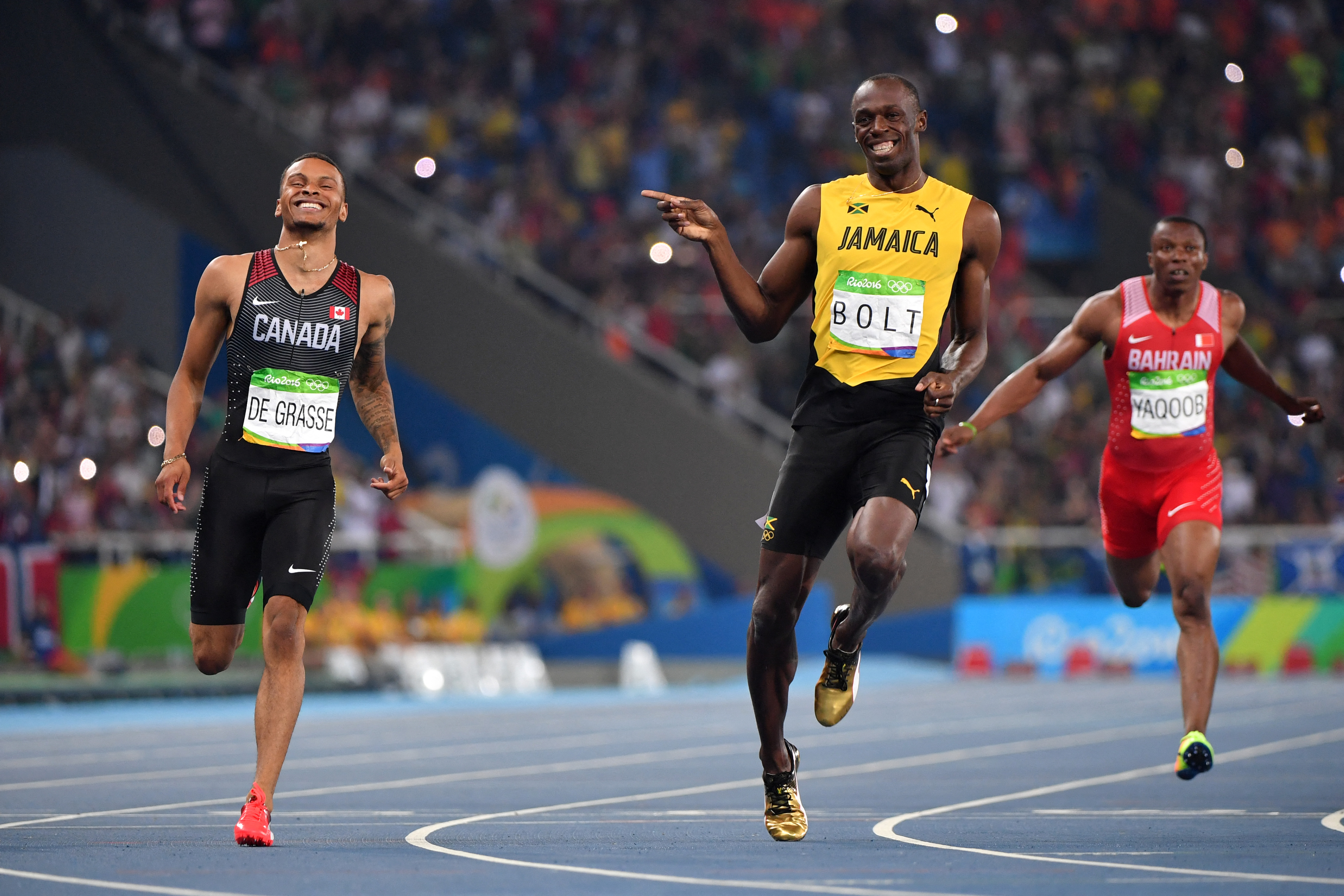
FIle this one under moments you'll never forget: Usain Bolt absolutely crushing the competition in the 2016 Olympics (and being charismatic as heck while doing it). His speed and agility was startlingly impressive every single time he raced, and he became the first man in history to win the 100m at three consecutive Olympic Games. He also broke world records in the 100m and 200m and won a total of eight gold medals over the course of his career.
Tonya Harding and Nancy Kerrigan, 1994
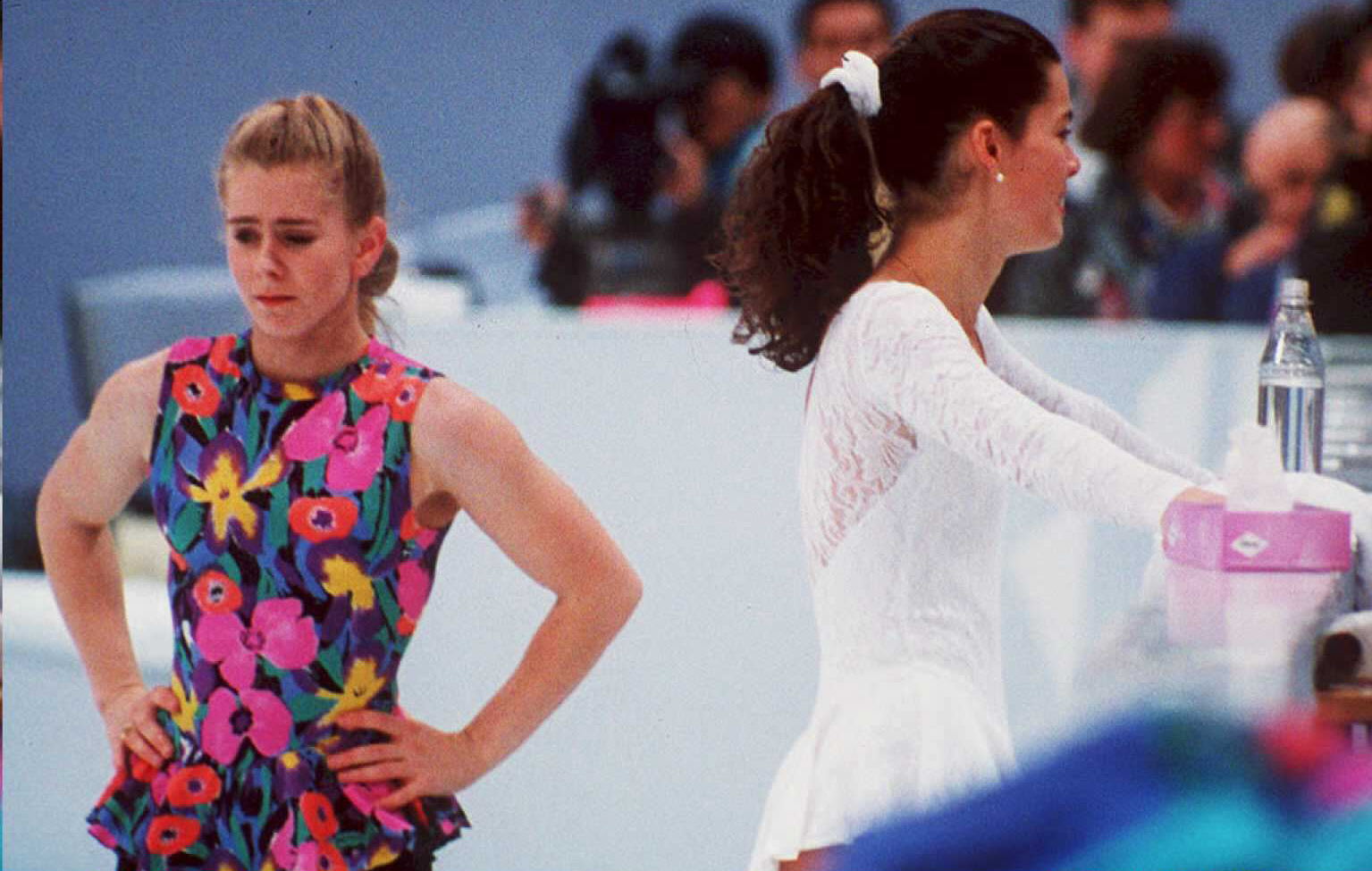
Some healthy competition between athletes is part of the fun of watching sports. But things took a decidedly unhealthy turn in 1994: Someone attacked Nancy Kerrigan, endangering her ability to compete at the upcoming Olympics. Suspicion passed to competitor Tonya Harding, and her then-husband was arrested for the crime. Weeks later, Kerrigan and Harding faced off at the Olympics (and, as seen in this photo, ignored each other). Harding would later plead guilty to hindering prosecution.
Dan Jansen, 1994
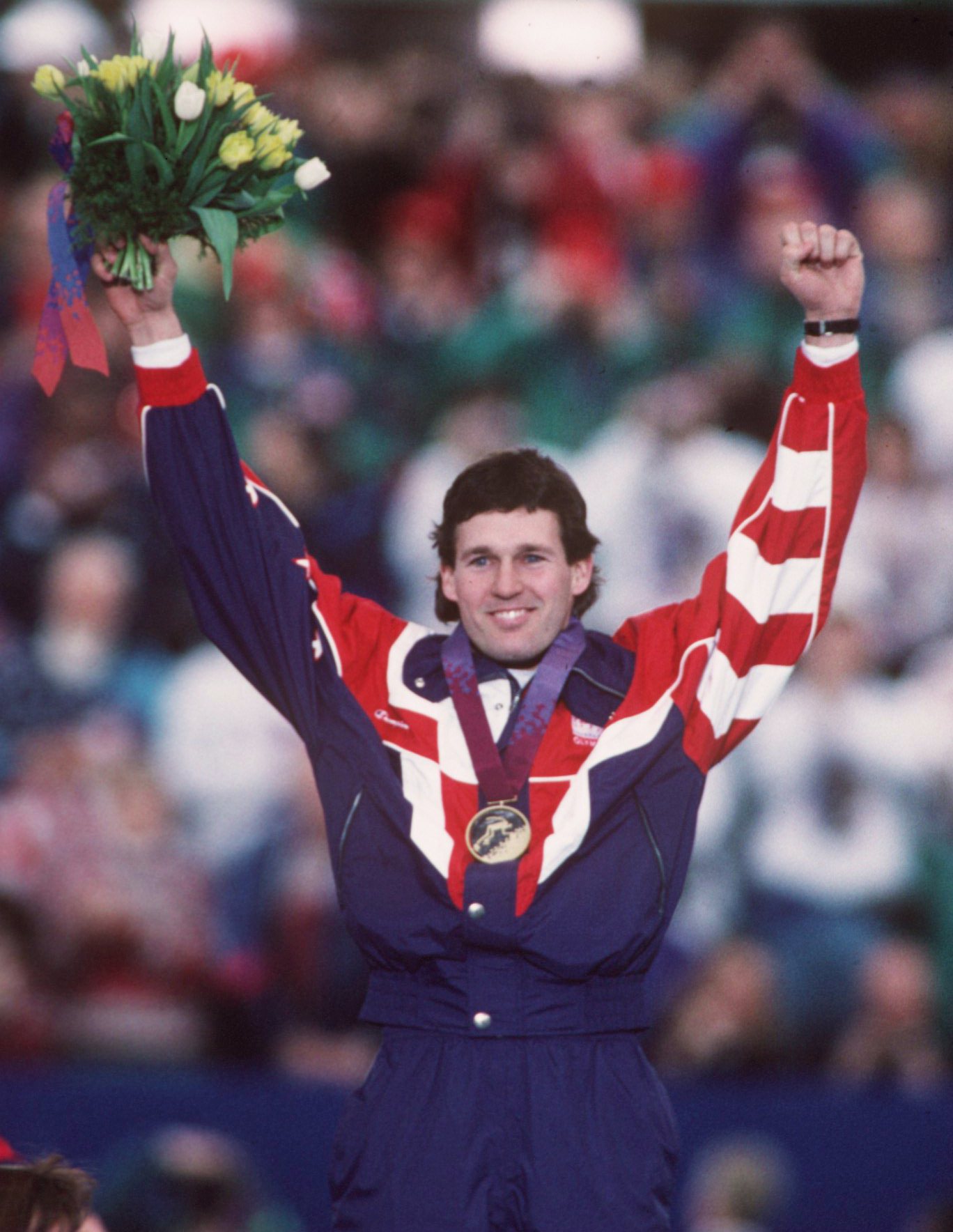
It seemed like there was a curse on speed skater Dan Jansen since he kept missing out on a medal. In 1988, his sister died on the day he raced. In 1992, his performance was underwhelming. But in 1994, at the Norway Olympics, it finally happened: He won gold and broke a world record, even after slipping during a turn.
Larisa Latynina, 1964
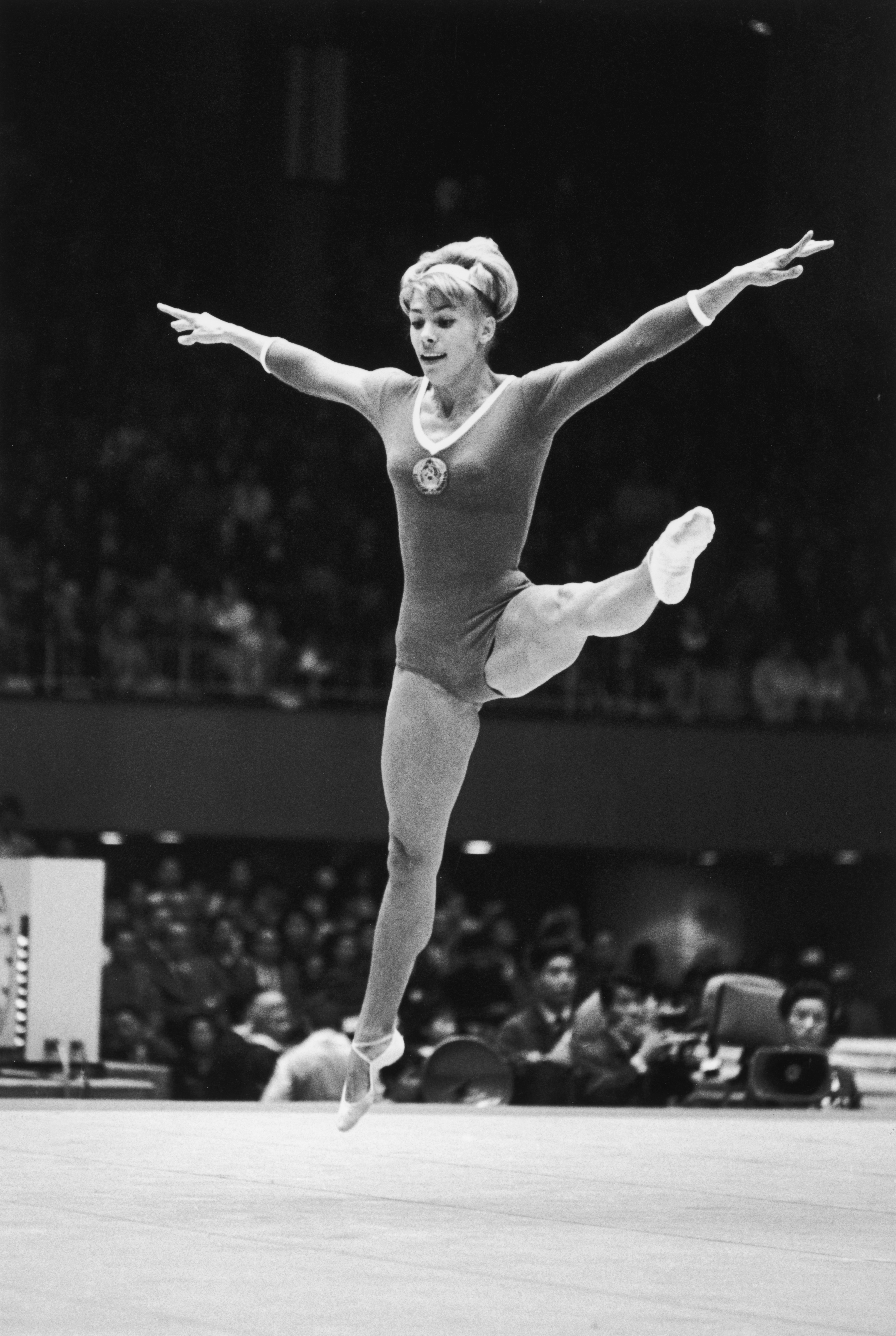
Gymnastics is a fun, deeply watchable sport—and it has been for a long time. Soviet gymnast Larisa Latynina won a whopping six medals in 1964, bringing her total number of gold medals up to nine and total medal count to 18. She broke the record for most medals won by a female Olympian.
Nadia Comaneci, 1976
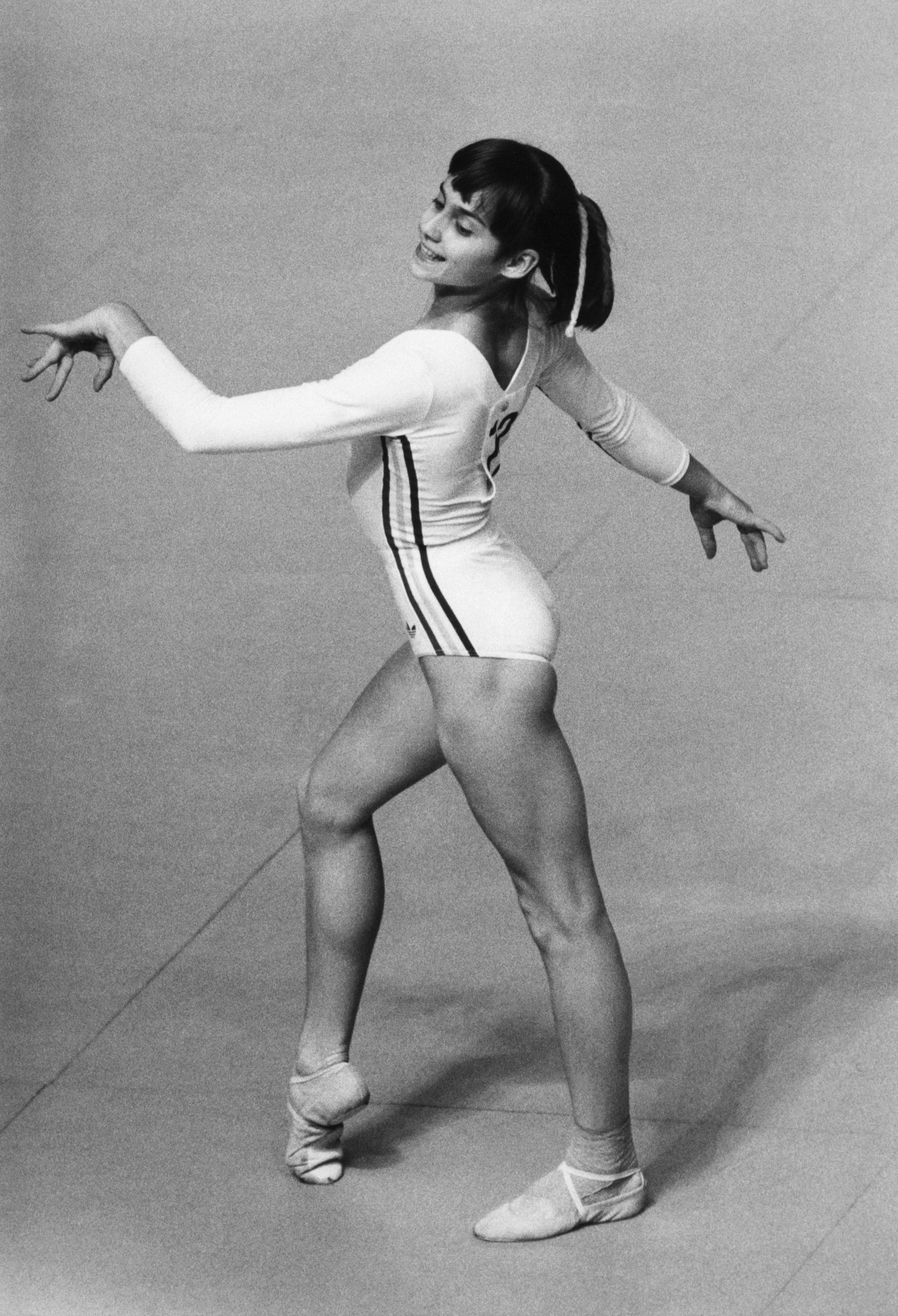
Gymnastics: never boring! Nadia Comaneci became the first gymnast to achieve a perfect score—and she did it seven times at the 1976 Montreal Olympics, with three tens from the balance beam and four from the uneven bars. No surprise, but she also won three golds that year.
"Flo-Jo," 1988
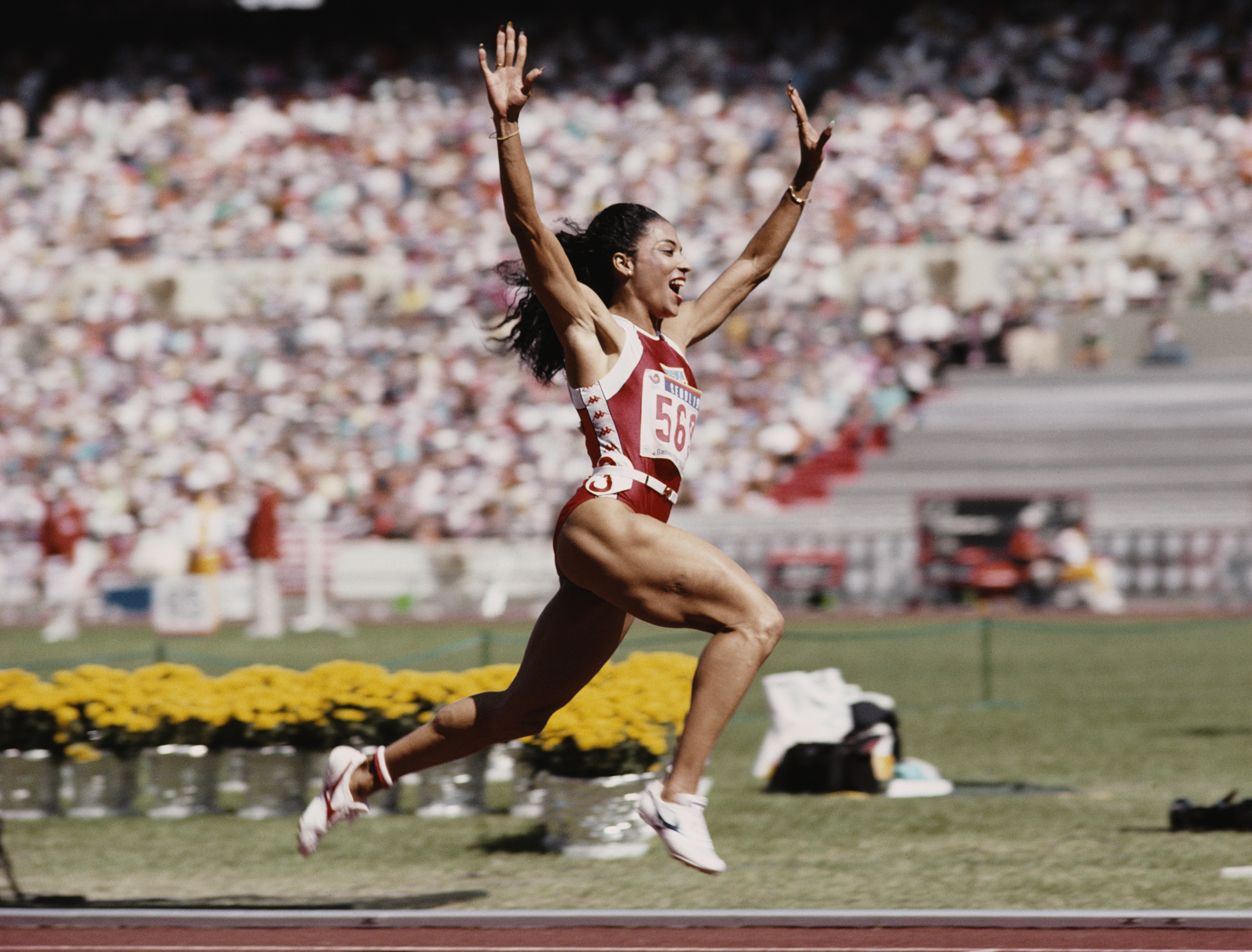
"Flo-Jo" (American sprinter Florence Griffith Joyner) was the darling of the 1988 Olympics. With two major wins, she set a world record in the 200m and very nearly beat her own world record in the 100m. Also, her look of pure joy here (that matched her powerful, enthusiastic running style) is perfect.
Simone Biles, 2024
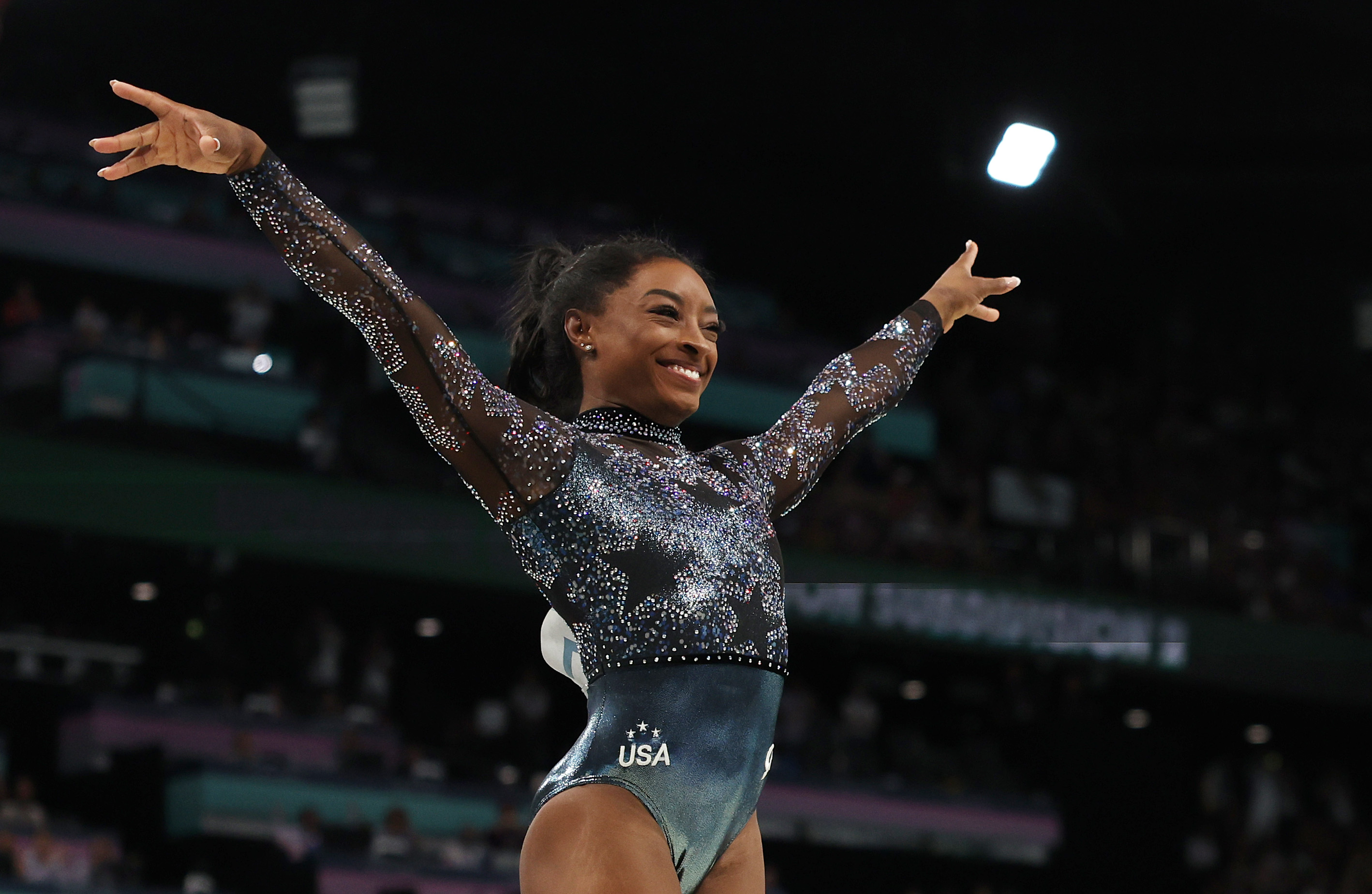
What a road it has been for Simone Biles. Already accomplished from the 2016 Olympics, she had to withdraw in 2020 because she got "the twisties" (loss of air awareness during a twist). People assumed she wouldn't compete at another Olympics, given how short gymnasts' careers typically are. But Biles would not be stopped. She came back in 2024 for a "Redemption Tour" and won three golds and a silver. That brought her medal tally up to 11 and made her the most decorated gymnast in history.
Muhammad Ali, 1960
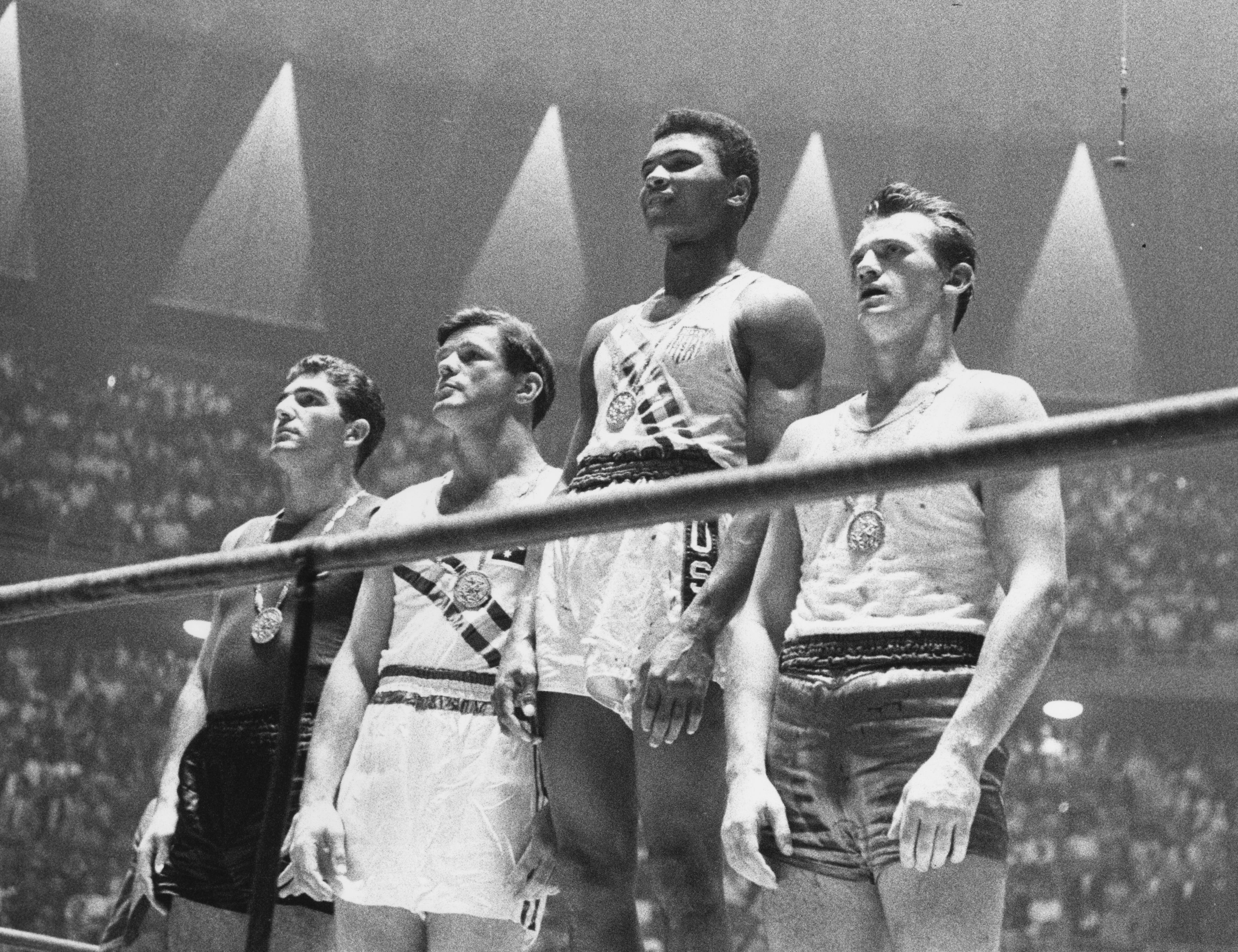
People who were unfamiliar with boxer Muhammad Ali swiftly learned his name thanks to the 1960 Olympics, where he won gold in the light-heavyweight division. Unfortunately, his medal went missing. Stories vary about what happened, but the prevailing theories are that he misplaced it or threw it away after being refused service at a segregated restaurant—even while wearing the medal. He was given a replacement in 1996.
Muhammad Ali, 1996
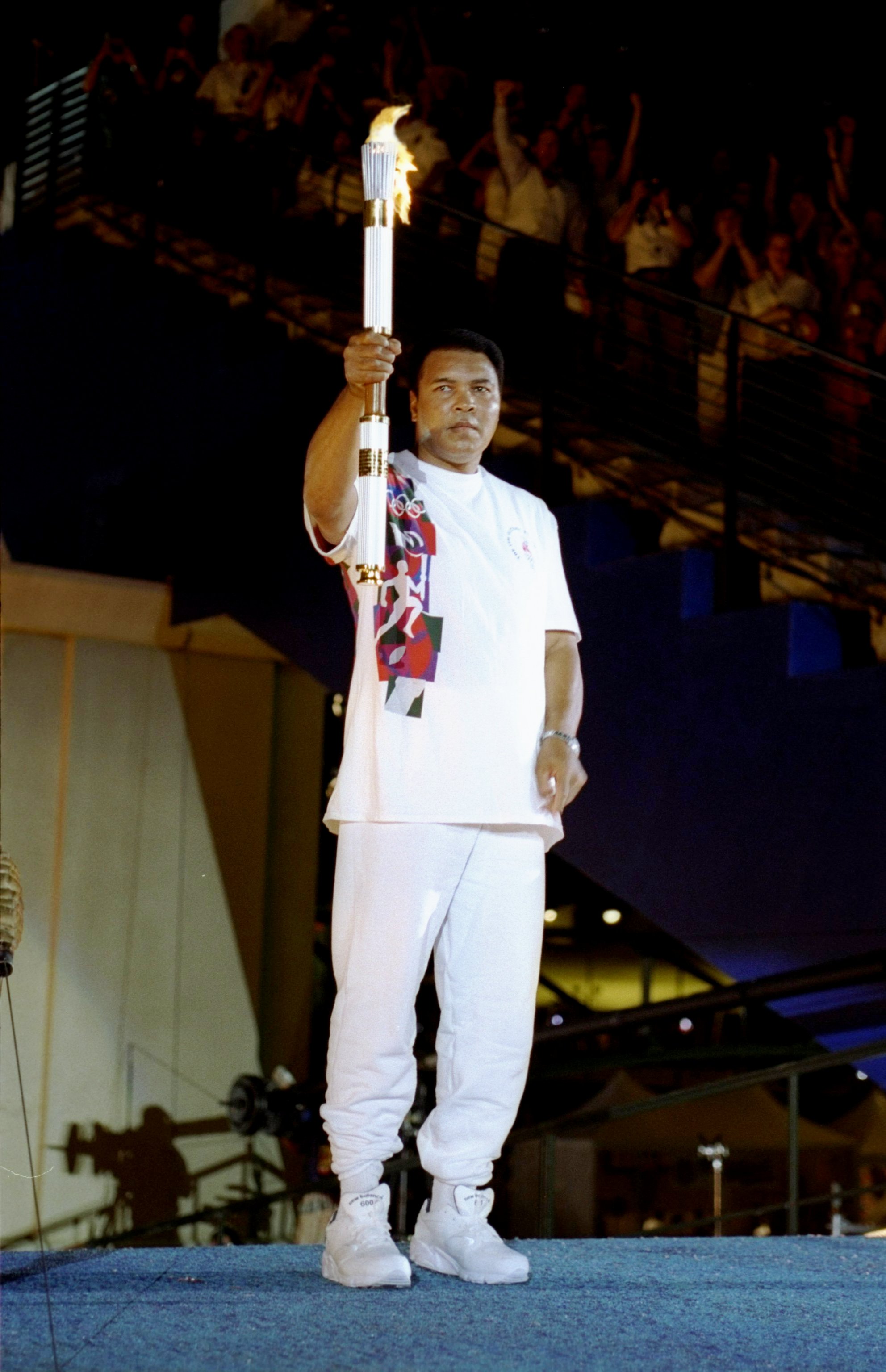
In 1996, Muhammad Ali was asked to light the Olympic Torch during the Opening Ceremony, and it was a moment that no one forgot: Ali was visibly shaking from Parkinson's disease, and the crowd was elated and moved by his presence. He said it was among the greatest honors in his career.
Oksana Baiul, 1994
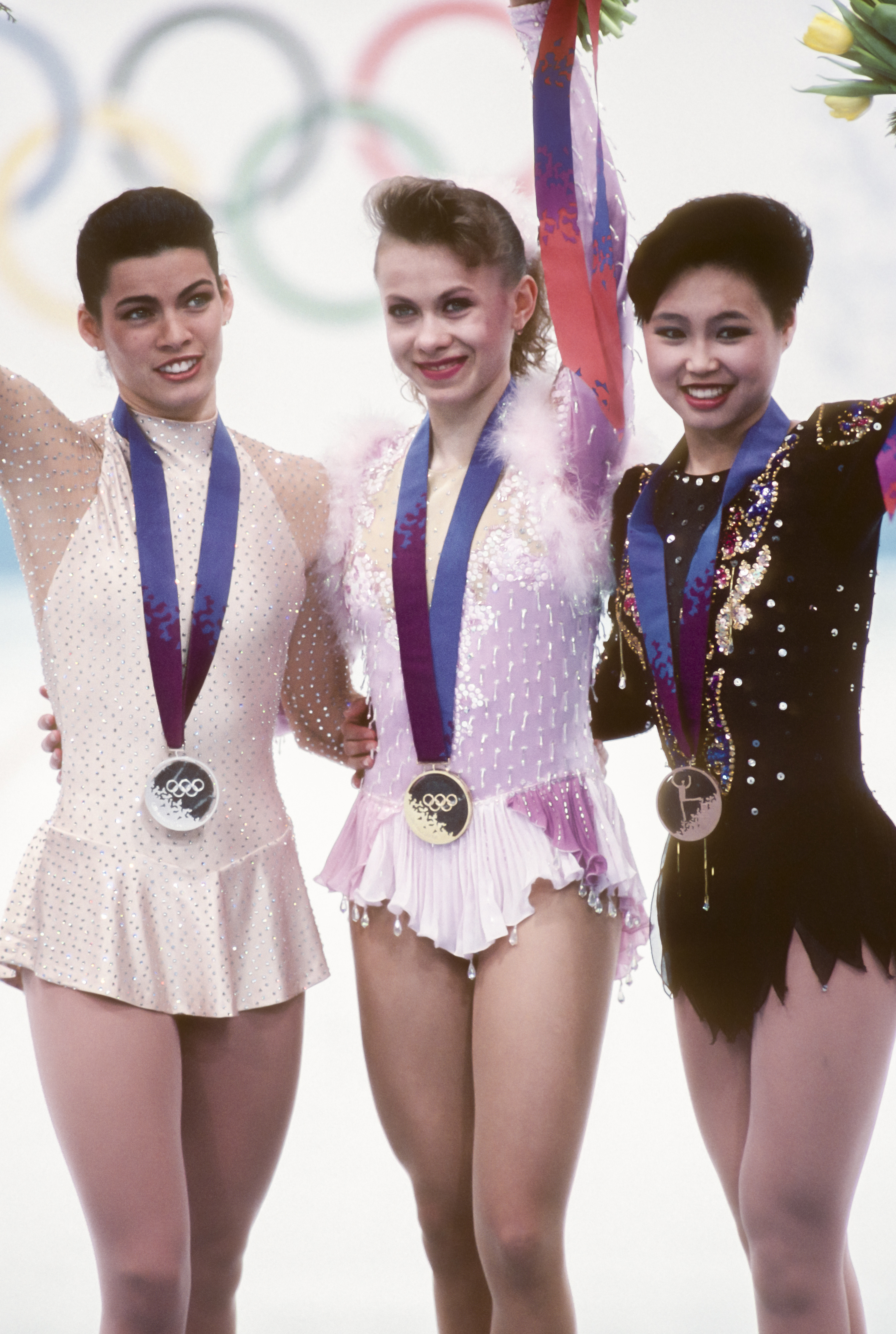
Even after a brutal assault, Nancy Kerrigan was the odds-on favorite to win figure skating gold at the 1994 Olympics. Instead, in an upset, Ukrainian skater Oksana Baiul (who was then only 16) inserted an extra triple jump at the end of her free skate and won by the narrowest of margins.
Greg Louganis, 1988
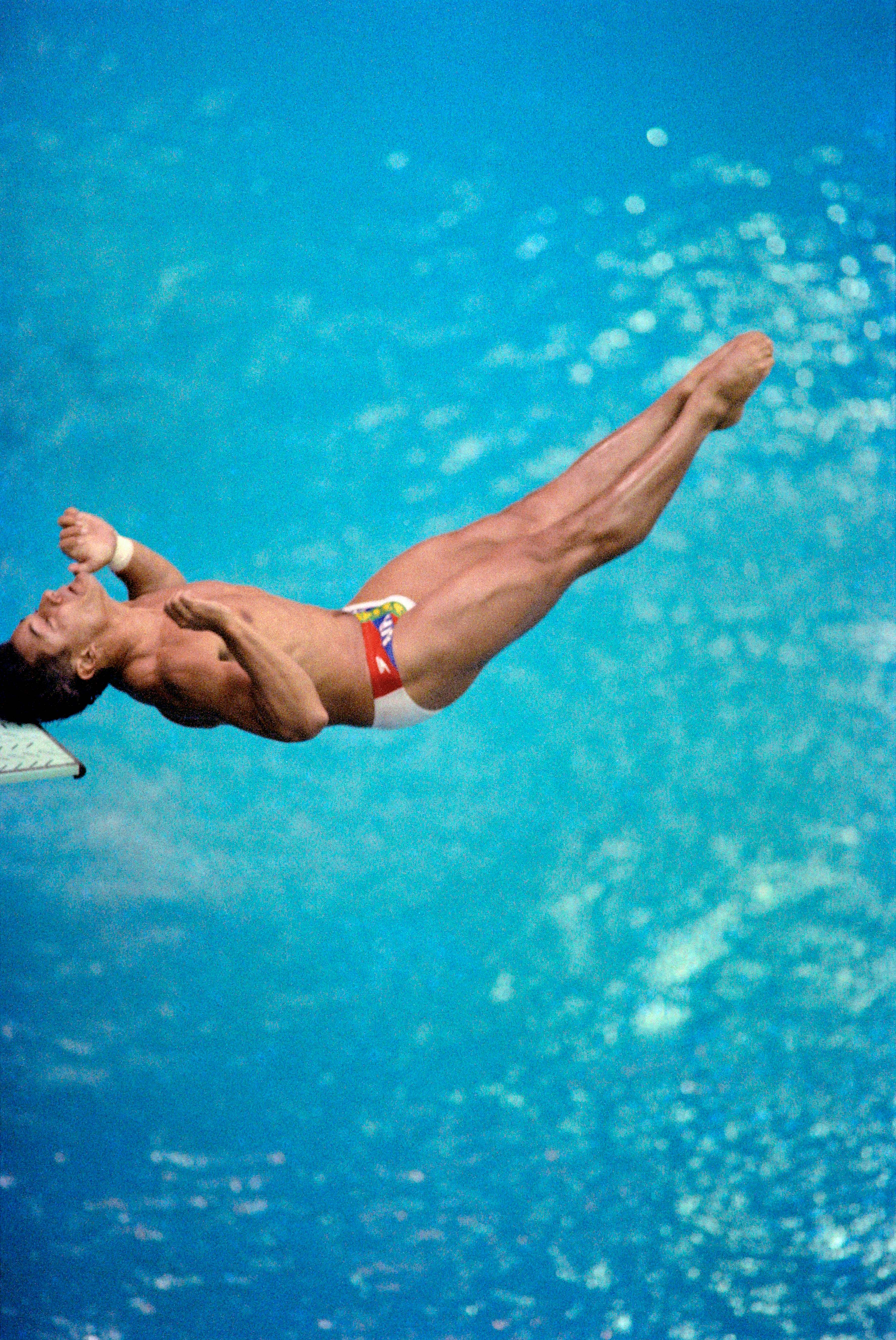
American diver Greg Louganis was favored to win big at the 1988 Olympics. Then, viewers were horrified to watch as his head hit the diving board in the preliminaries. (Louganis, who was HIV-positive but had not disclosed that fact was worried his blood had gotten on the diving board.) He went on to win gold in that same event.
Derek Redmond (and His Dad), 1992
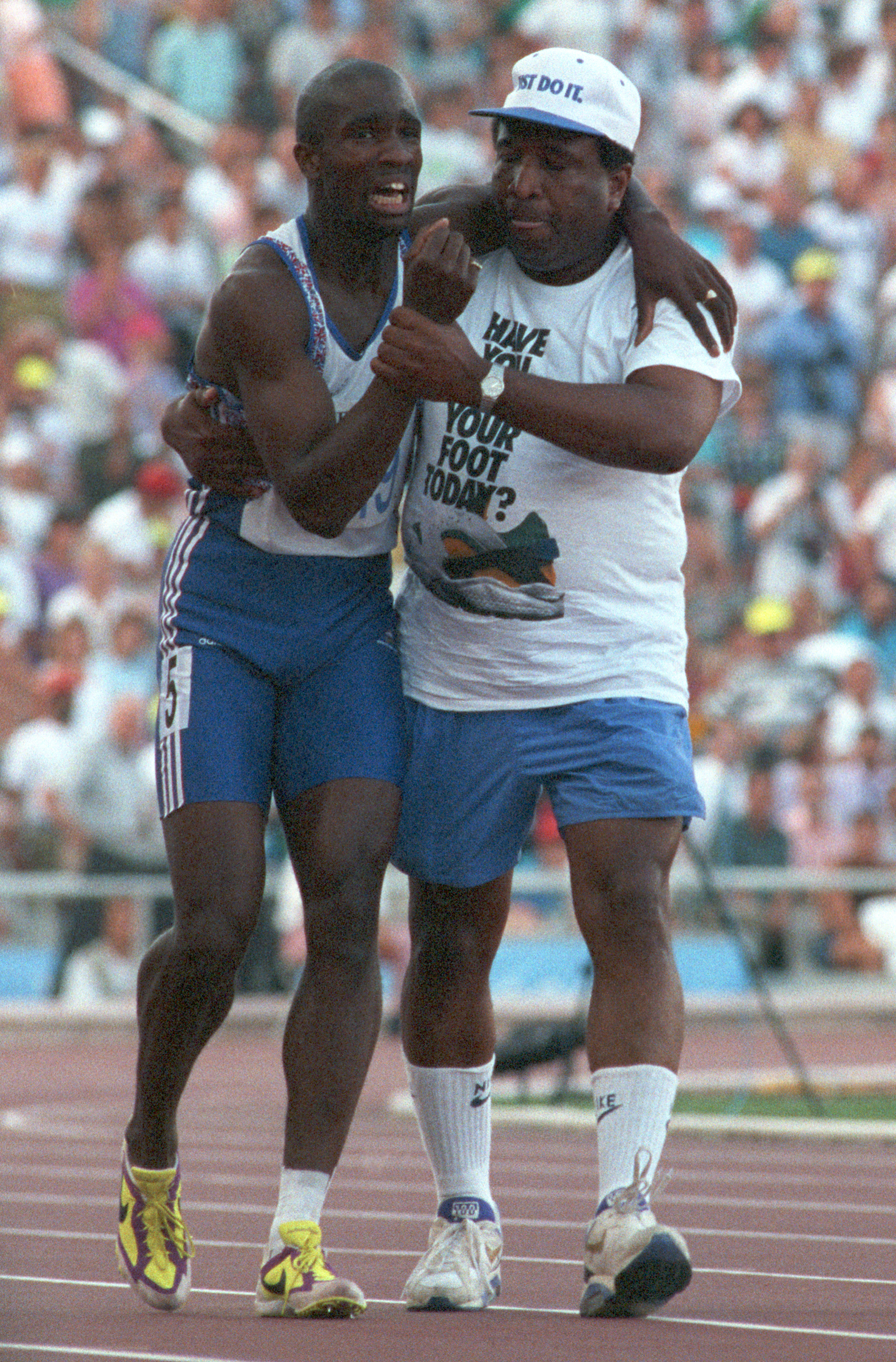
At the 1992 Olympics, Derek Redmond was on track to medal for the 400m. But during the semifinal, he was halfway through the race when he felt a devastating pop (he'd torn his hamstring). He collapsed, then got up and started to hobble towards the finish line. His dad rushed onto the track and helped him cross the finish line. The crowd cheered and wept in equal measure.
Cathy Freeman, 2000
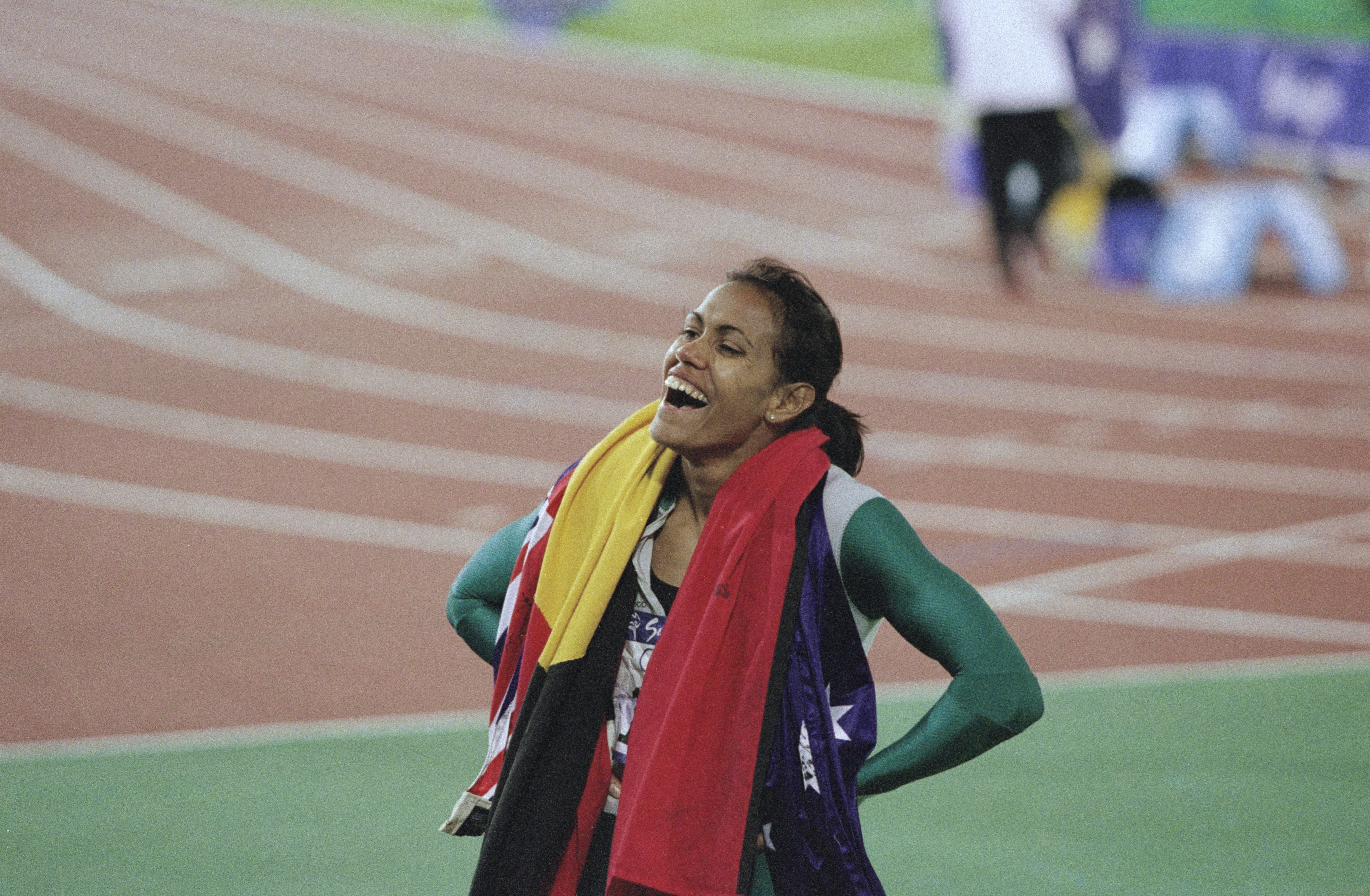
The stakes could not be higher for Cathy Freeman, an athlete of Aboriginal origin, as she went into the 2000 Olympics in her home country of Sydney, Australia. She had lit the Olympic torch and was the country's best chance at a medal. When it came time for her to run the 400m, the crowd's screams were deafening. She won handily, and her smile of relief was obvious to everyone.
Abebe Bikila, 1960
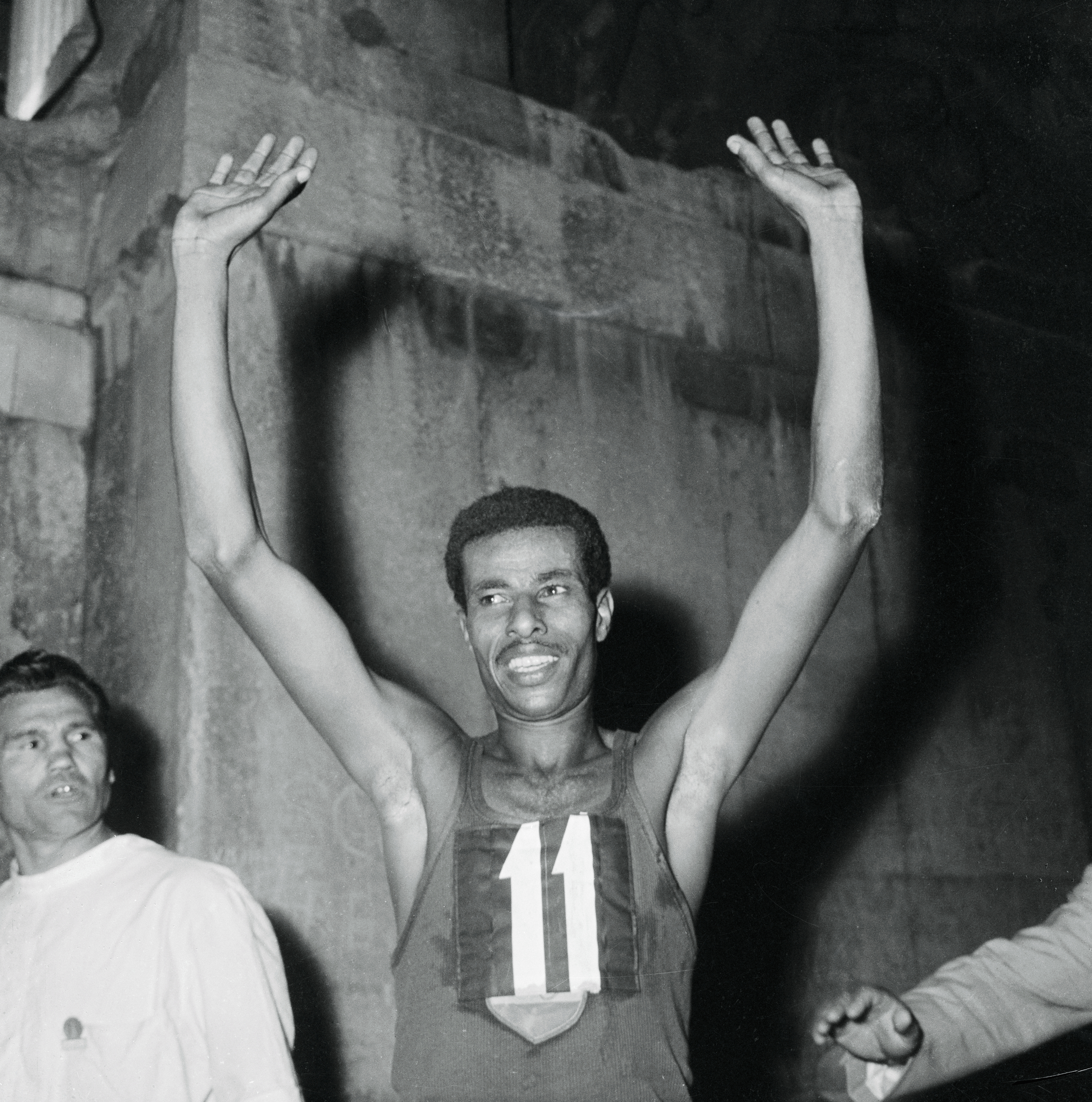
Abebe Bikila, a runner from Ethiopia, was the first Black African to win a gold medal. Not only that, but he won the 1960 Olympic marathon, broke a world record in doing so, and completed the whole race in bare feet (which was the way he always ran).
Kerri Strug, 1996
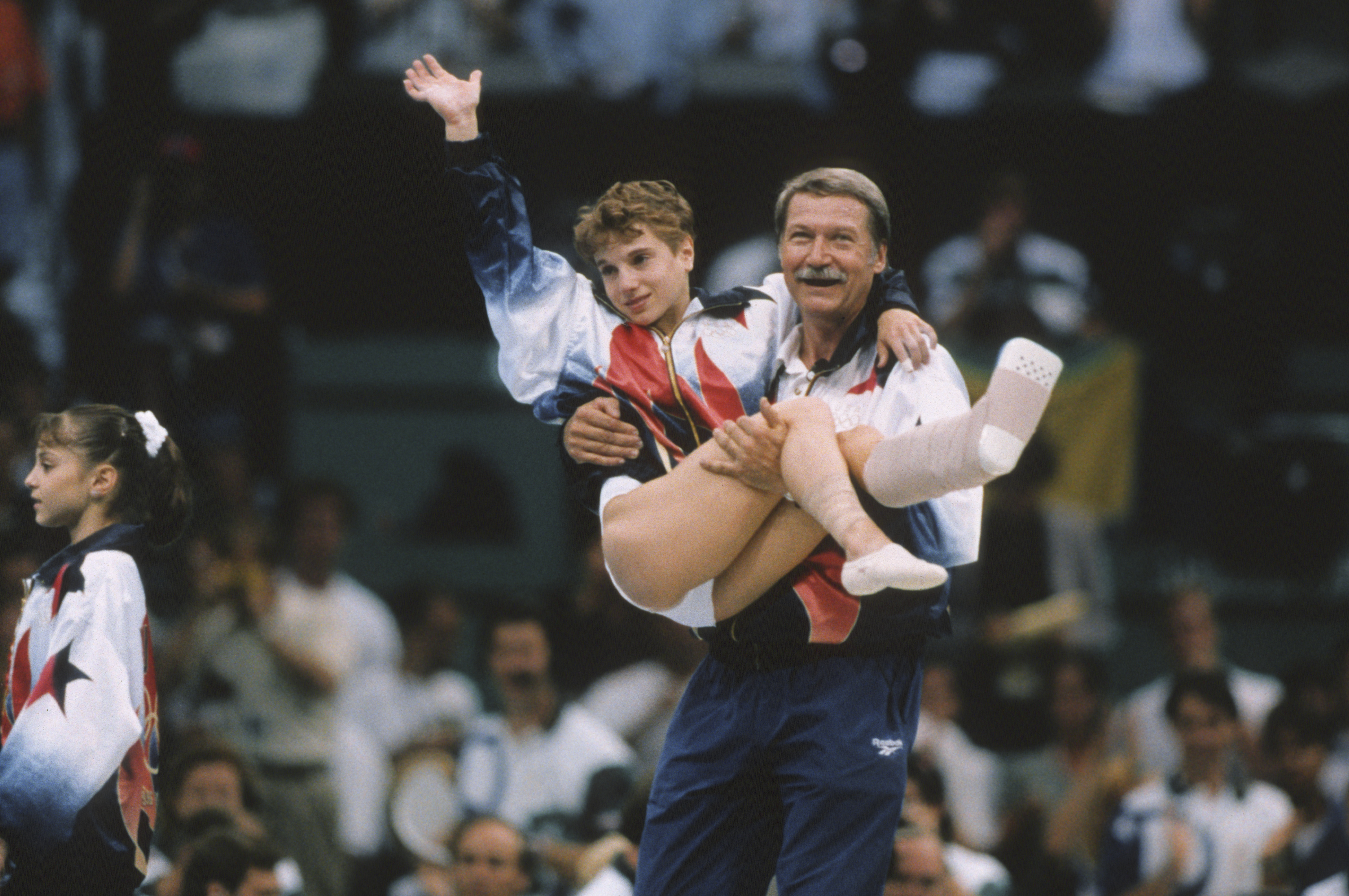
If you were locked in on the women's gymnastics team during the 1996 Olympics, you'll already know about this moment. Team USA was inches away from winning gold when Kerri Strug injured her leg on her second-to-last vault. Knowing what was at stake, she performed her final vault even though she was in pain. She landed on both feet and then pulled up her injured leg with a grimace of pain and collapsed. (She was later treated for a sprain and tendon damage.) It was enough to clinch gold, and Strug was hailed as a hero.
"Miracle on Ice," 1980
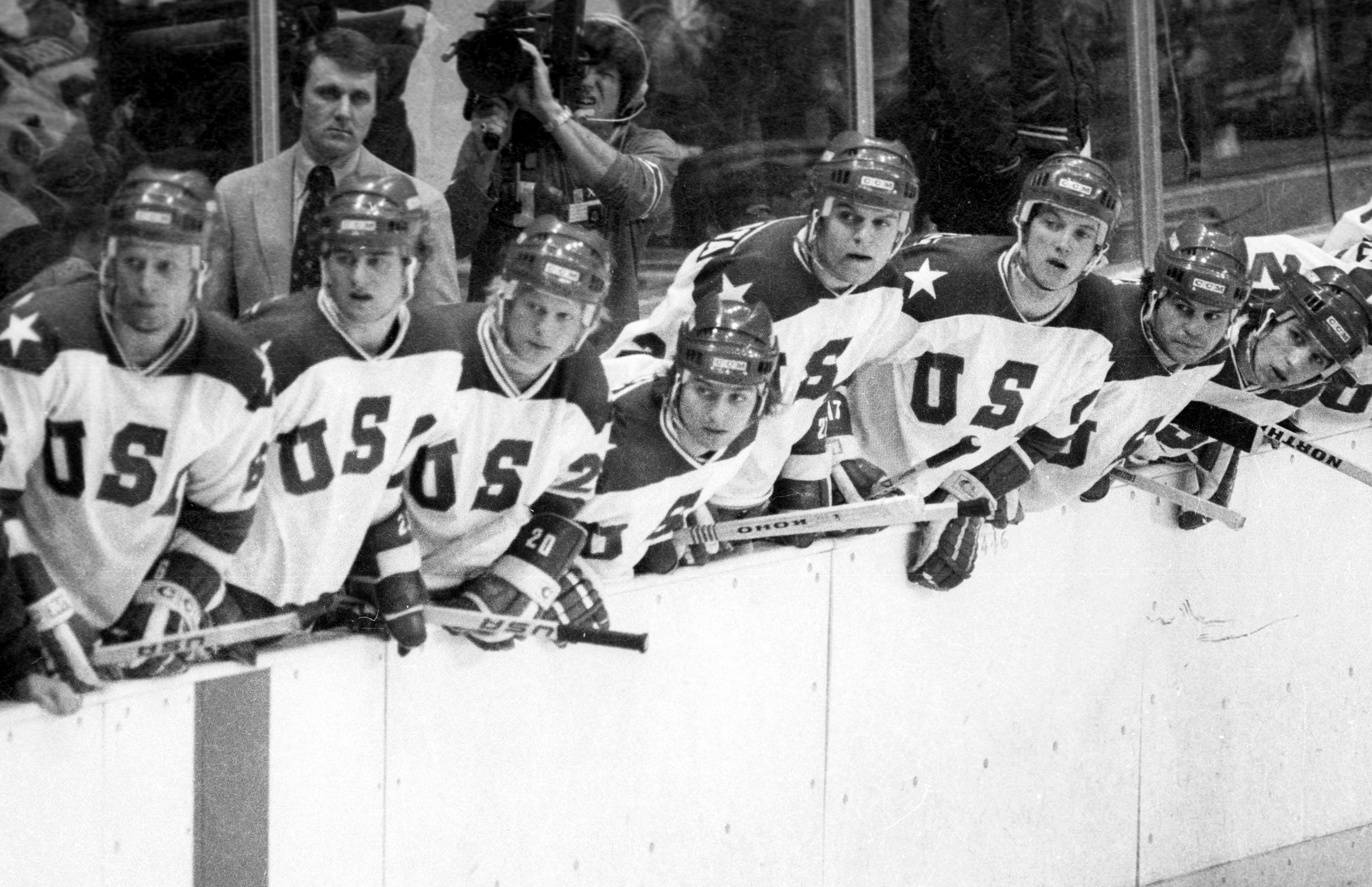
At the 1980 Olympics in New York, the United States was playing the Soviet Union in the first medal round. The Soviets were reigning champs and heavily favored to win, but the U.S. (in a huge upset and after trailing in the second period) beat them 4–3. Then, they went on to win gold against Finland. If you watched, you'll remember the commentary at the end of the game: "Do you believe in miracles? YES!"
Jesse Owens, 1936
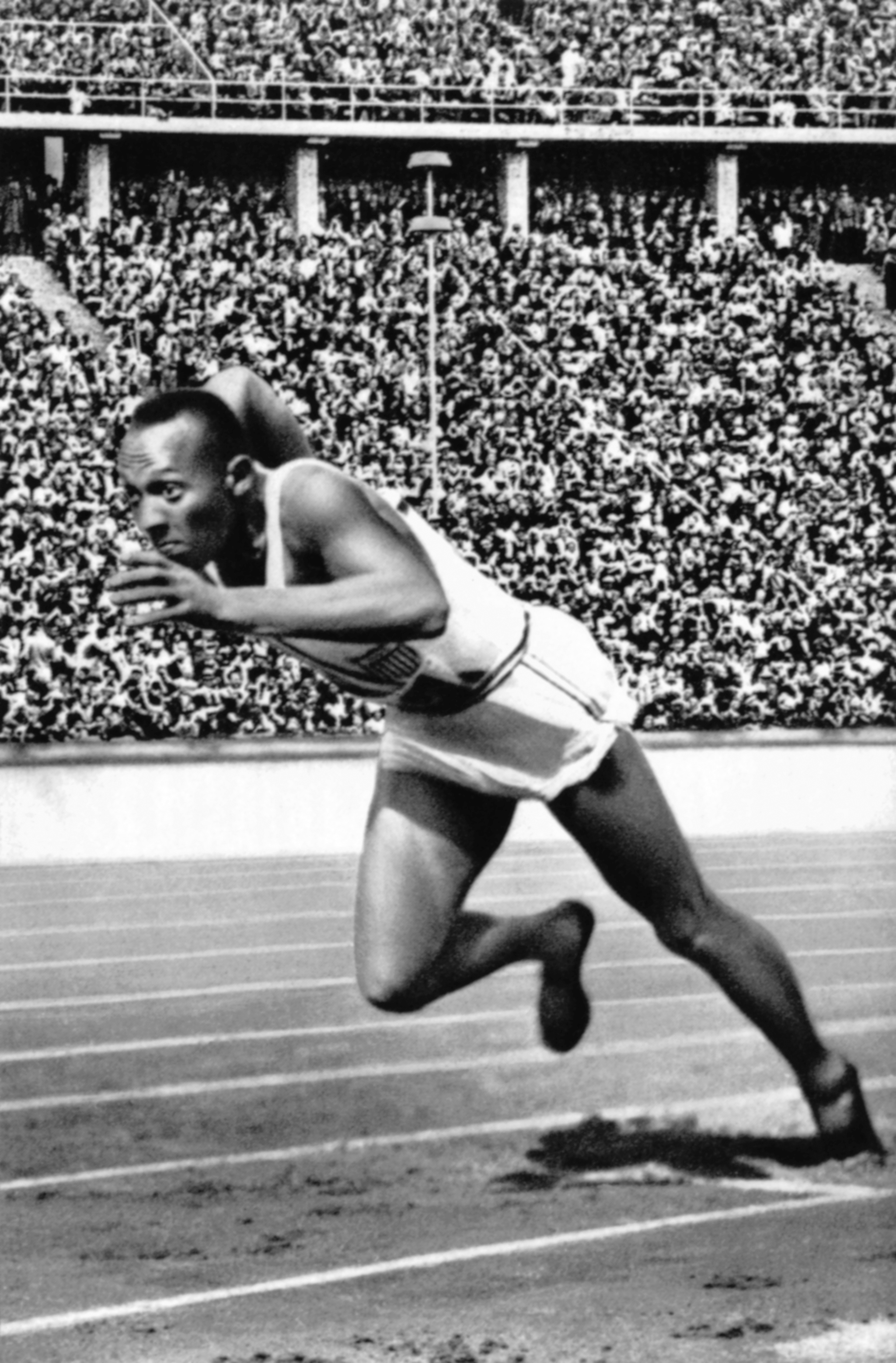
It's already impressive to win four gold medals at an Olympic Games—which track runner Jesse Owens did at the 1936 Berlin Olympics. But it's even more significant when you do it in Hitler-led Germany, which was trying to showcase Aryan prowess at the time.







